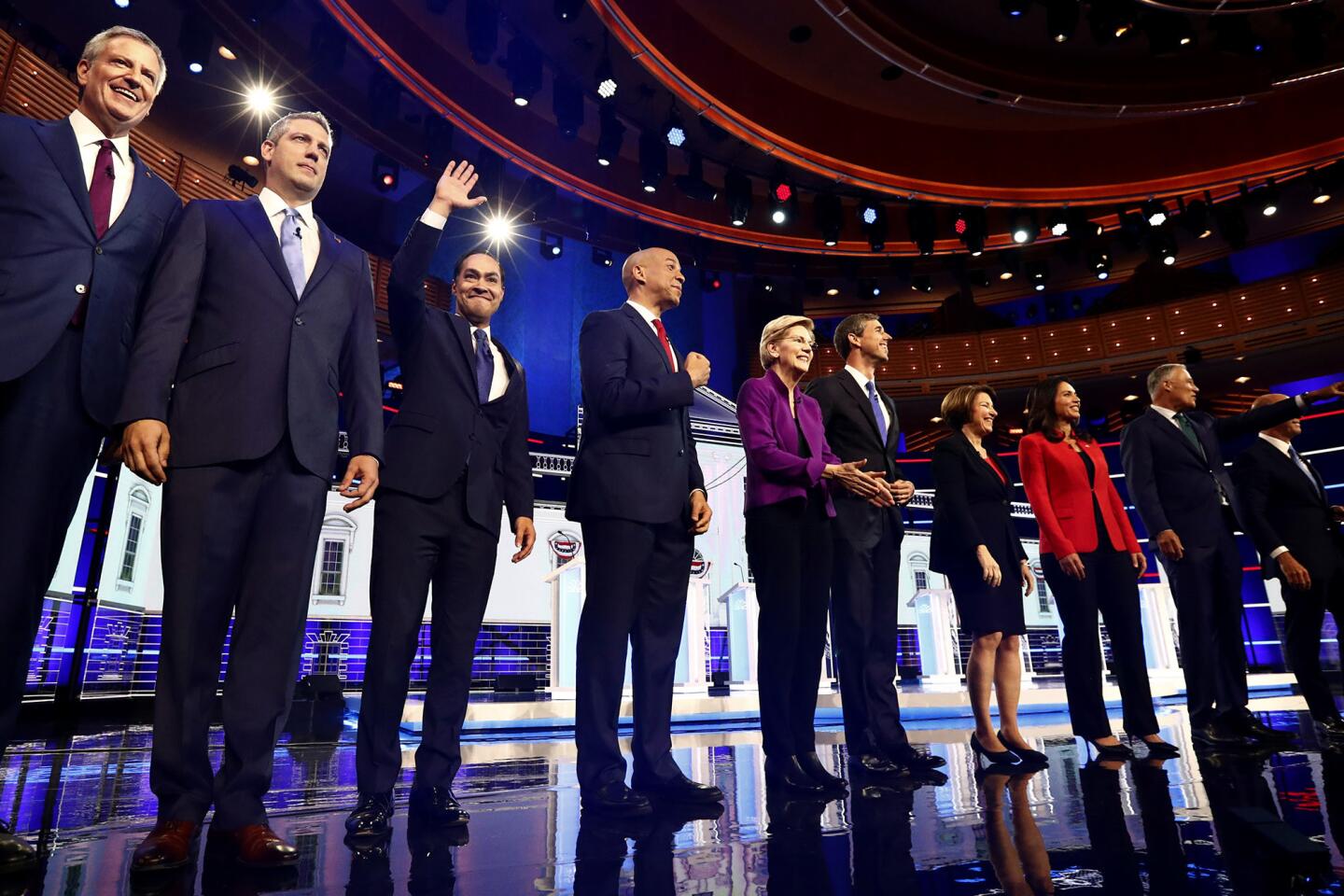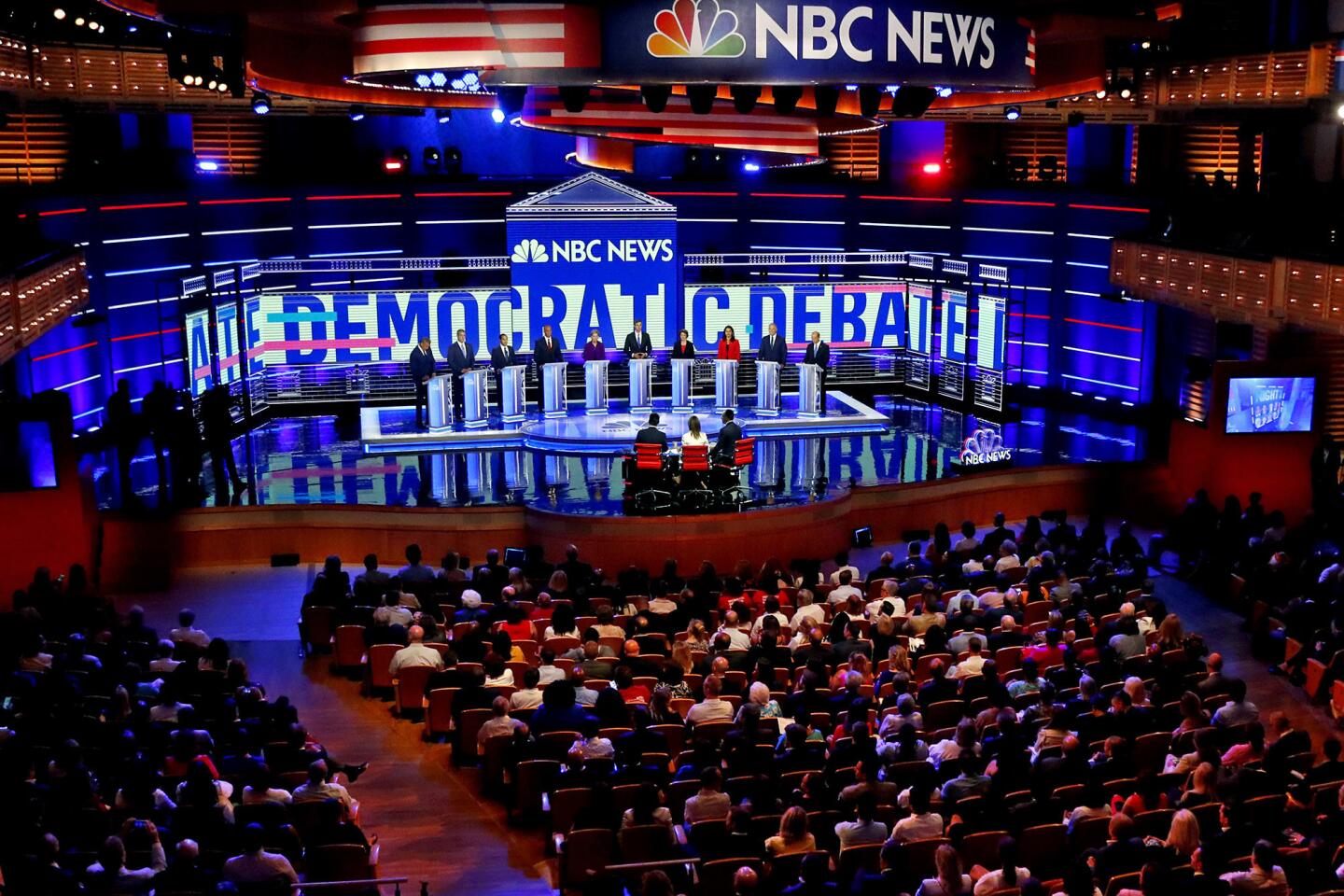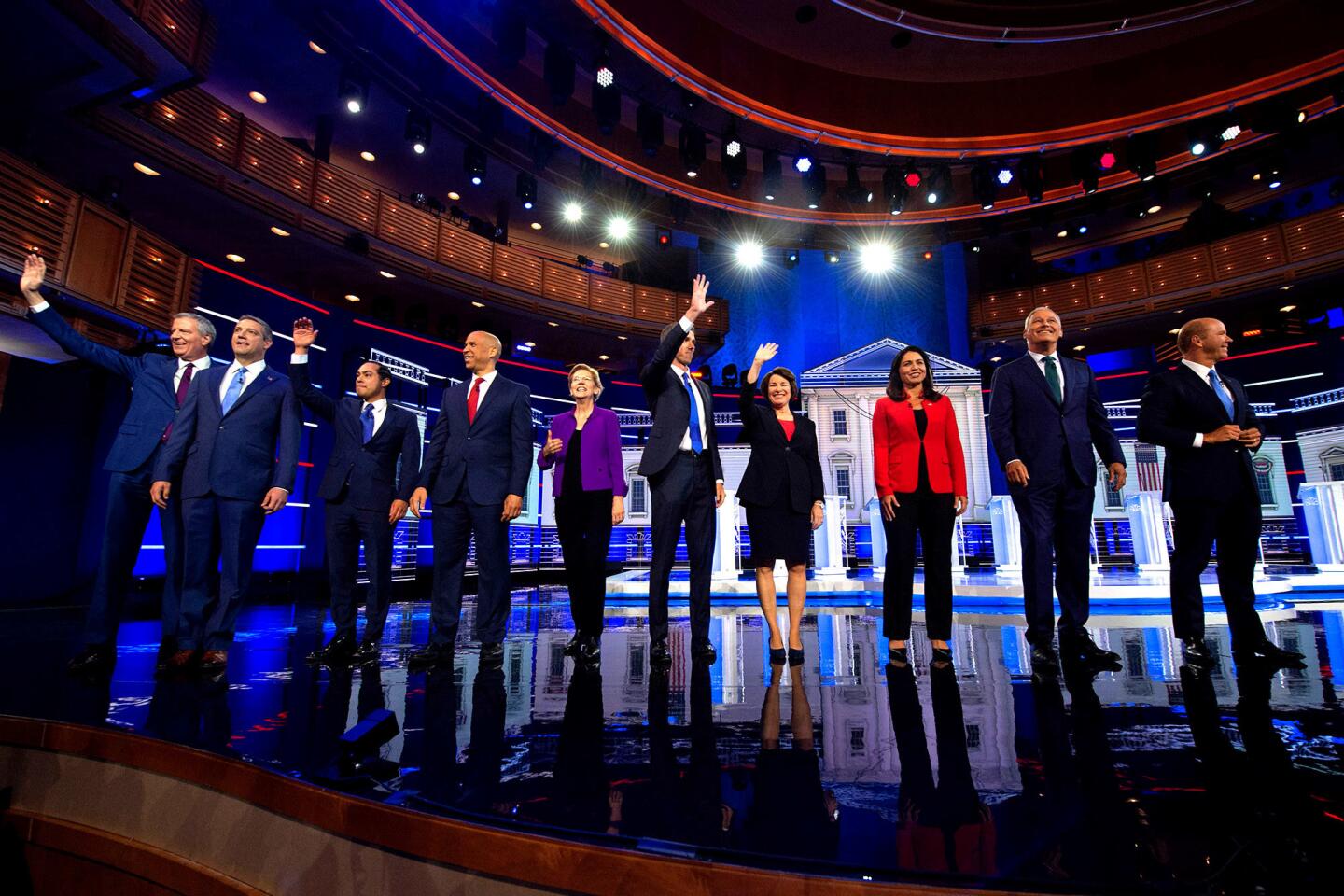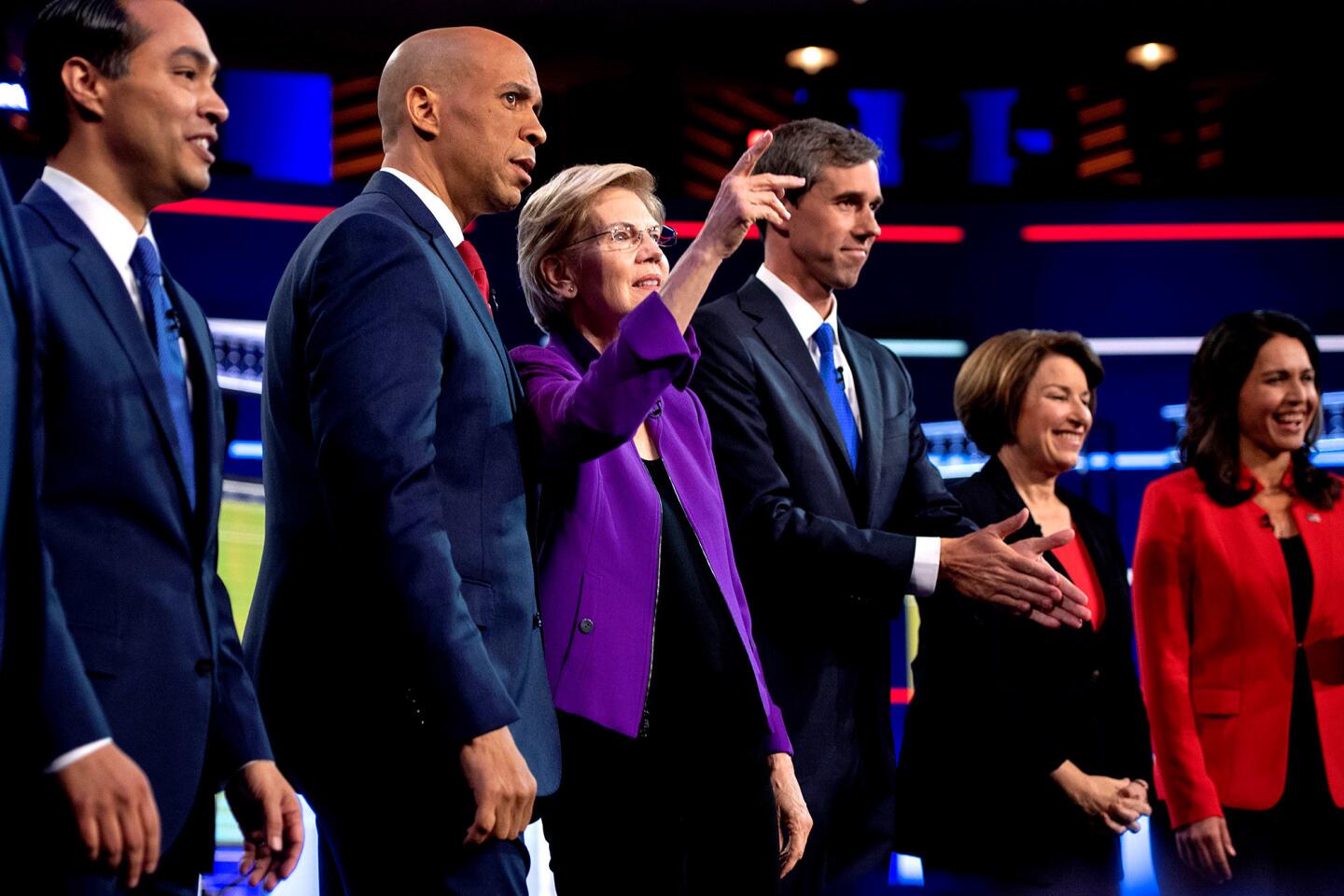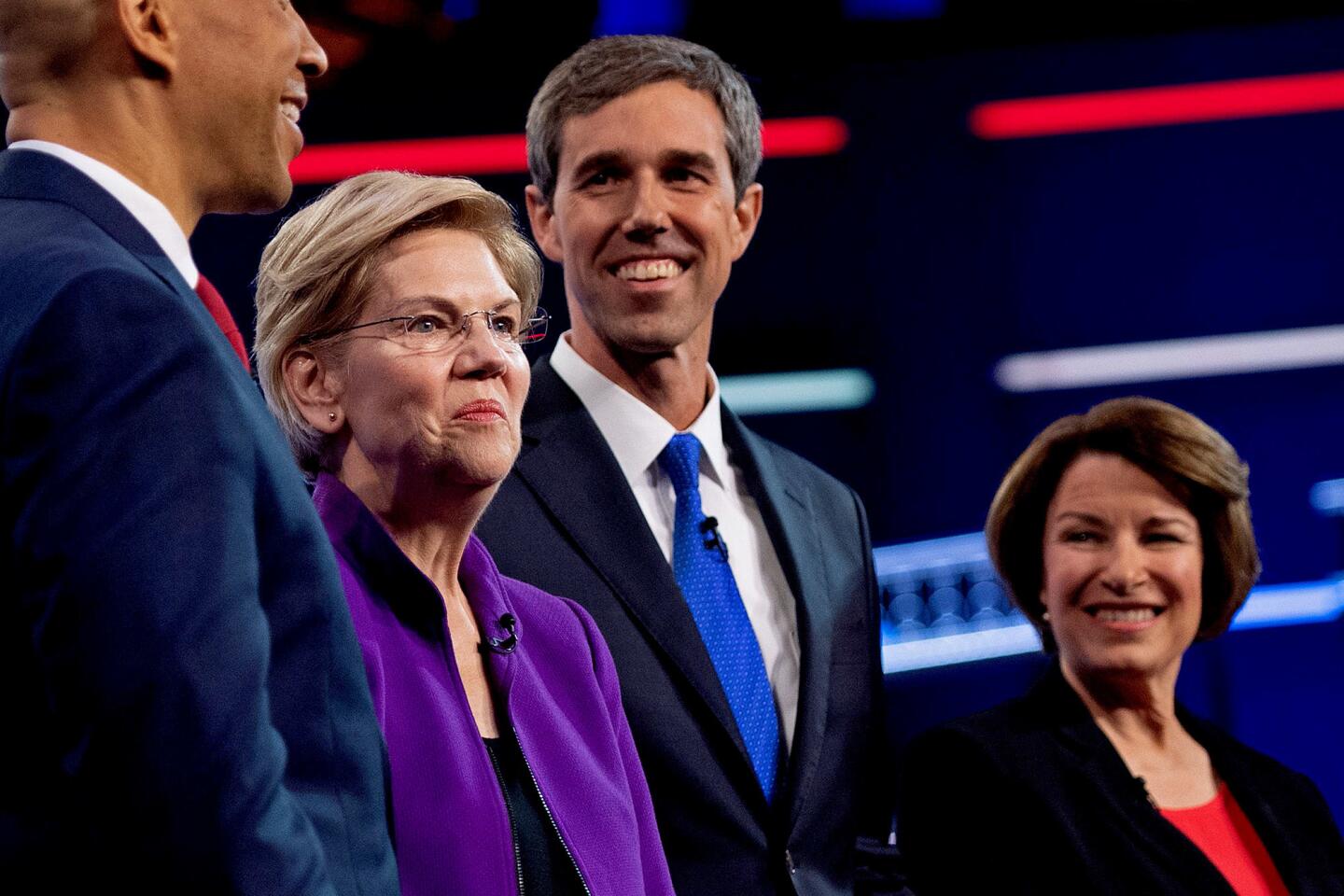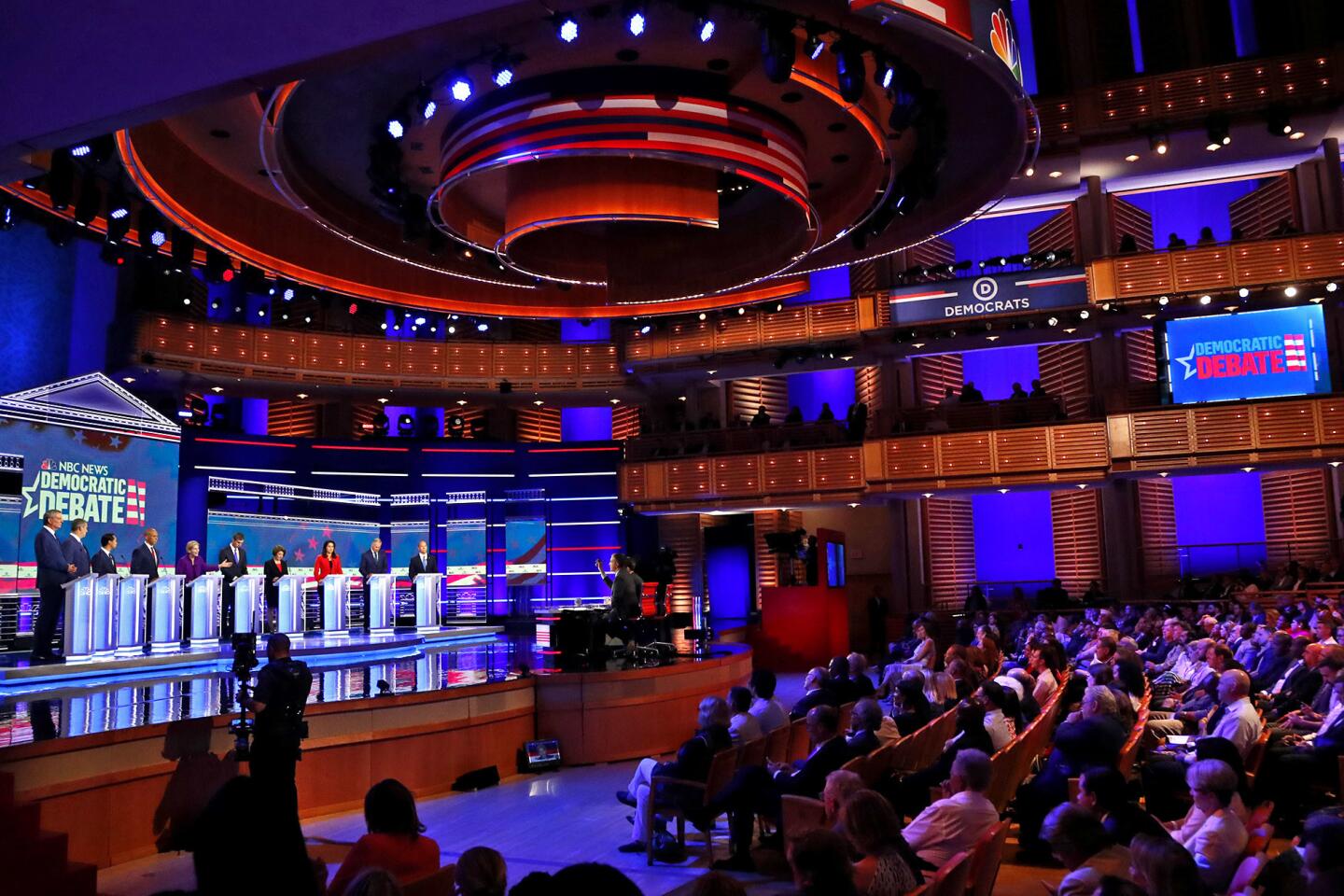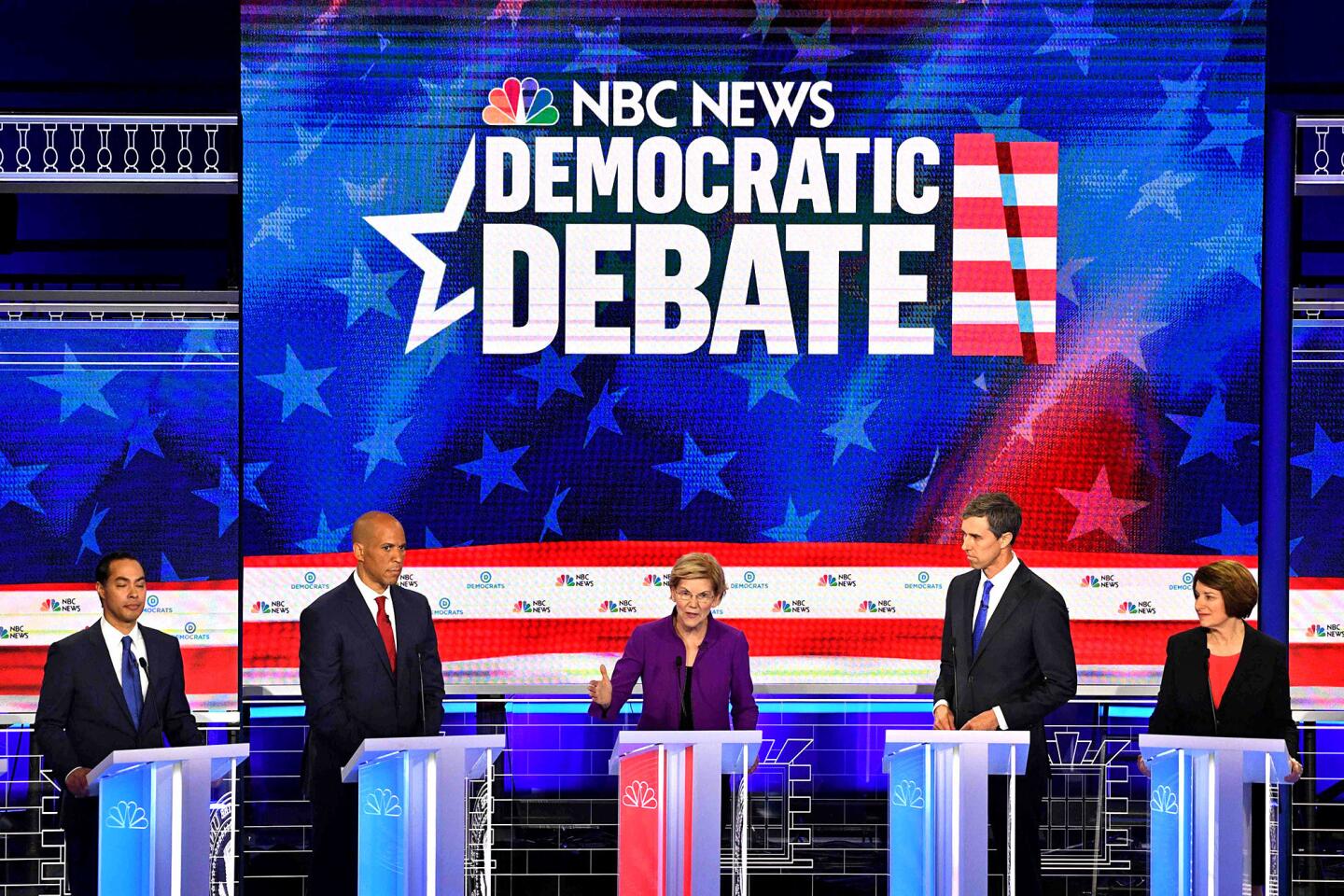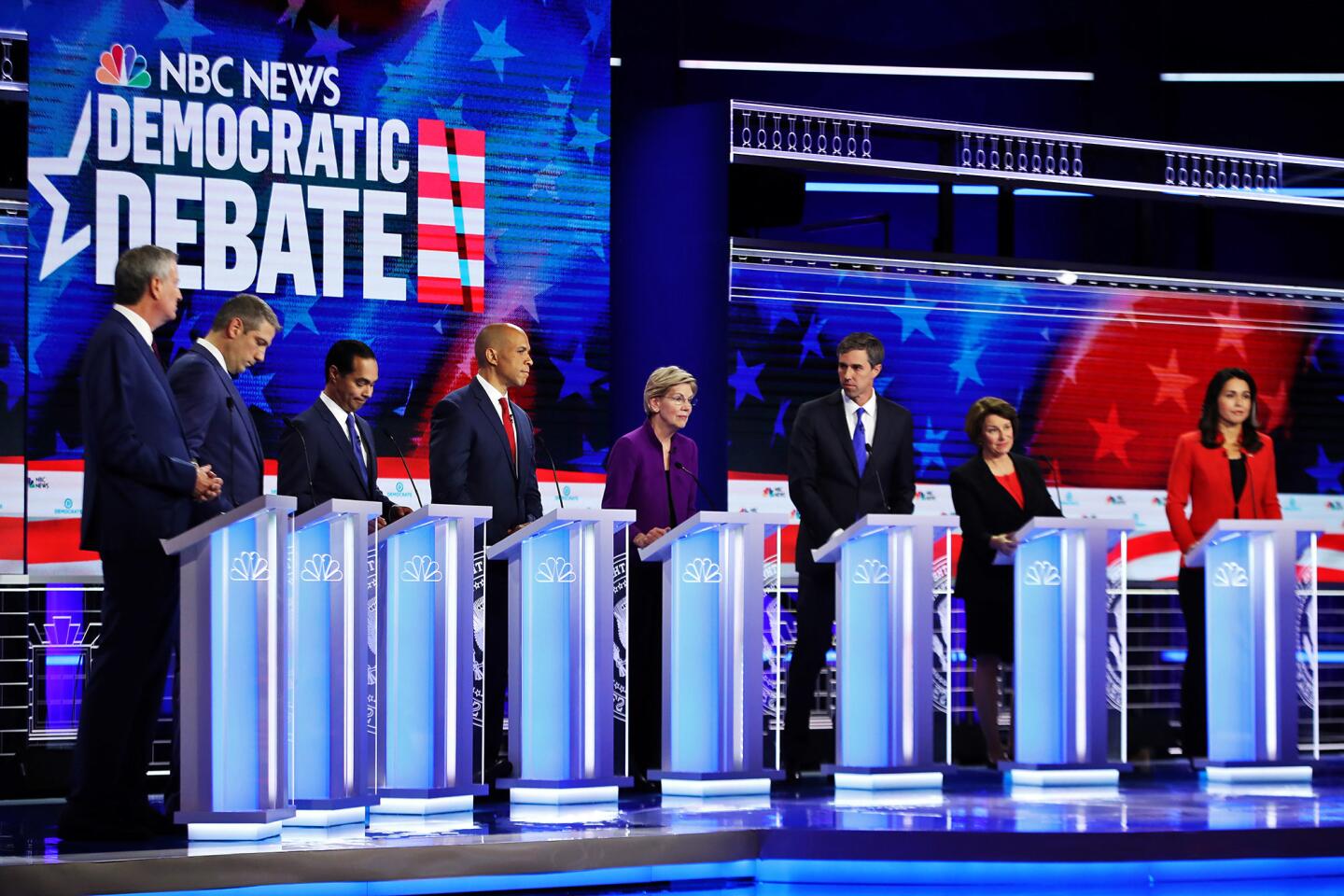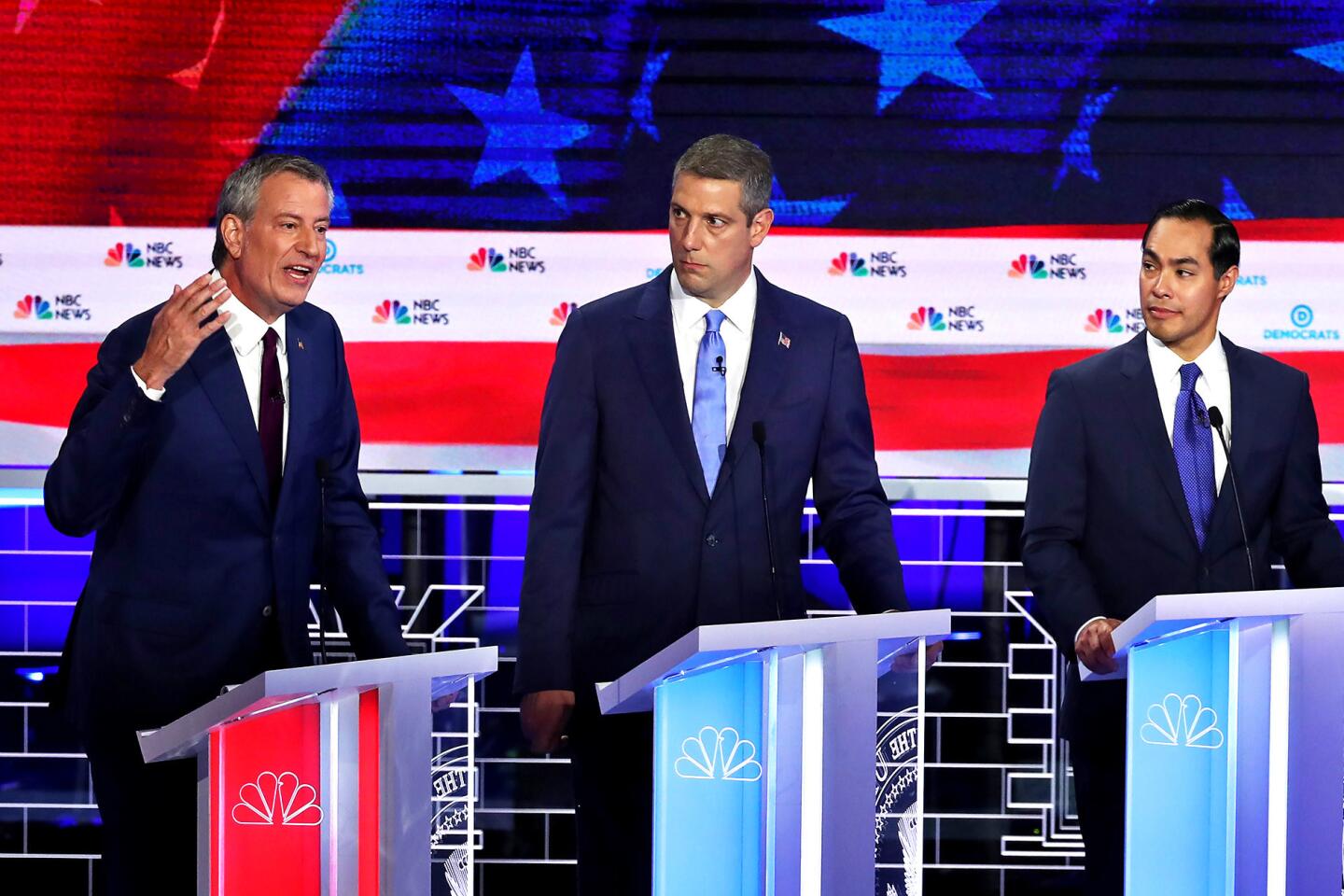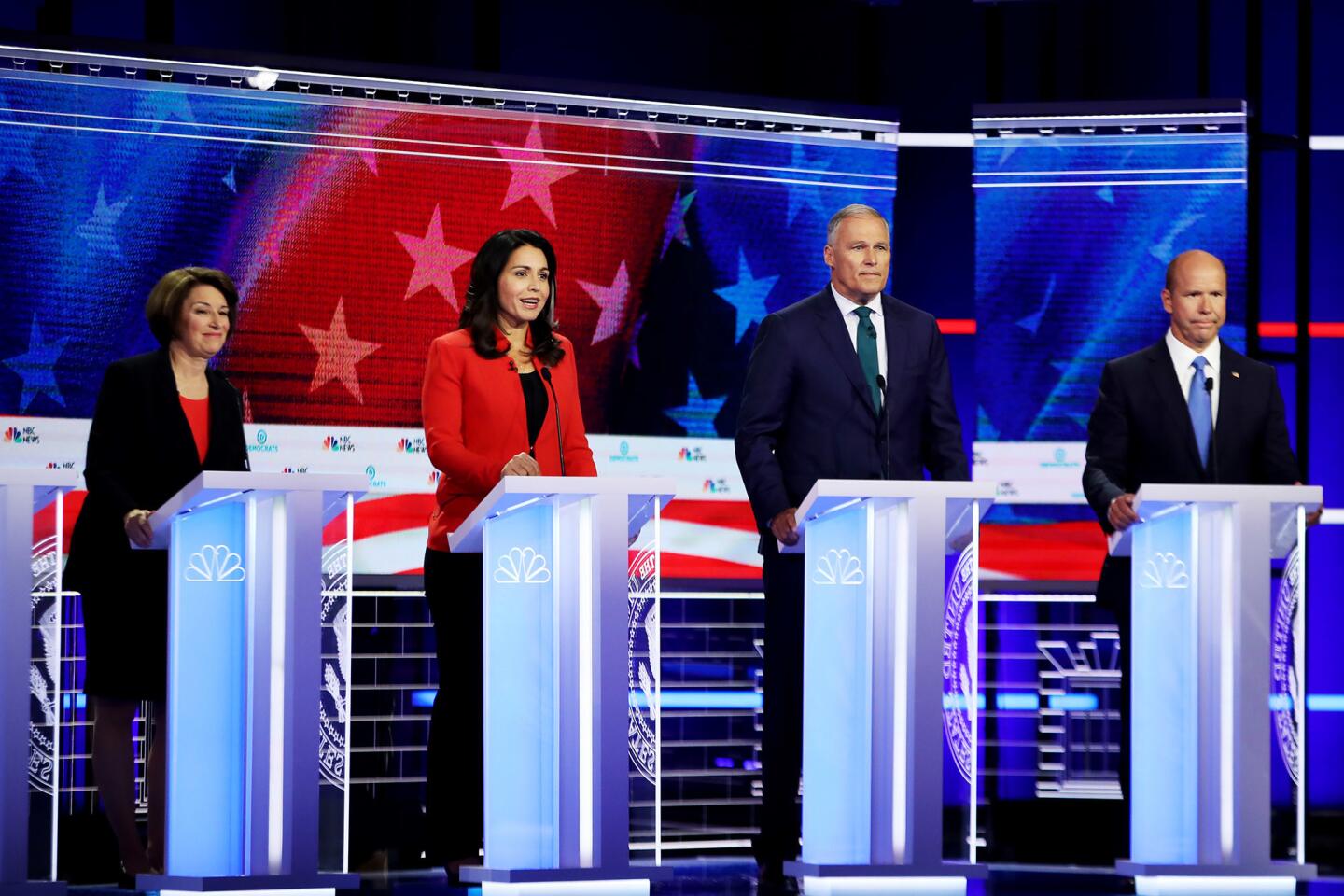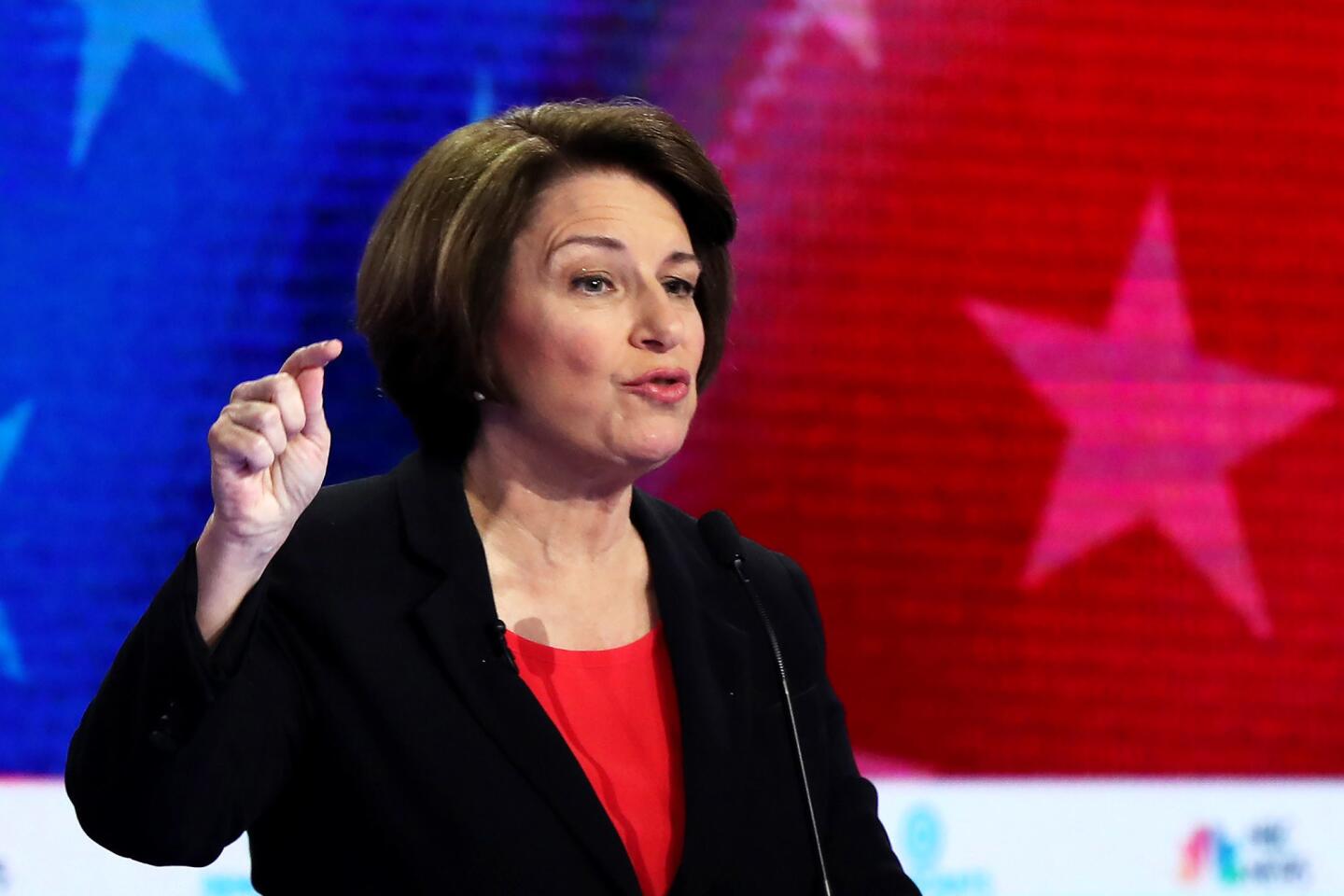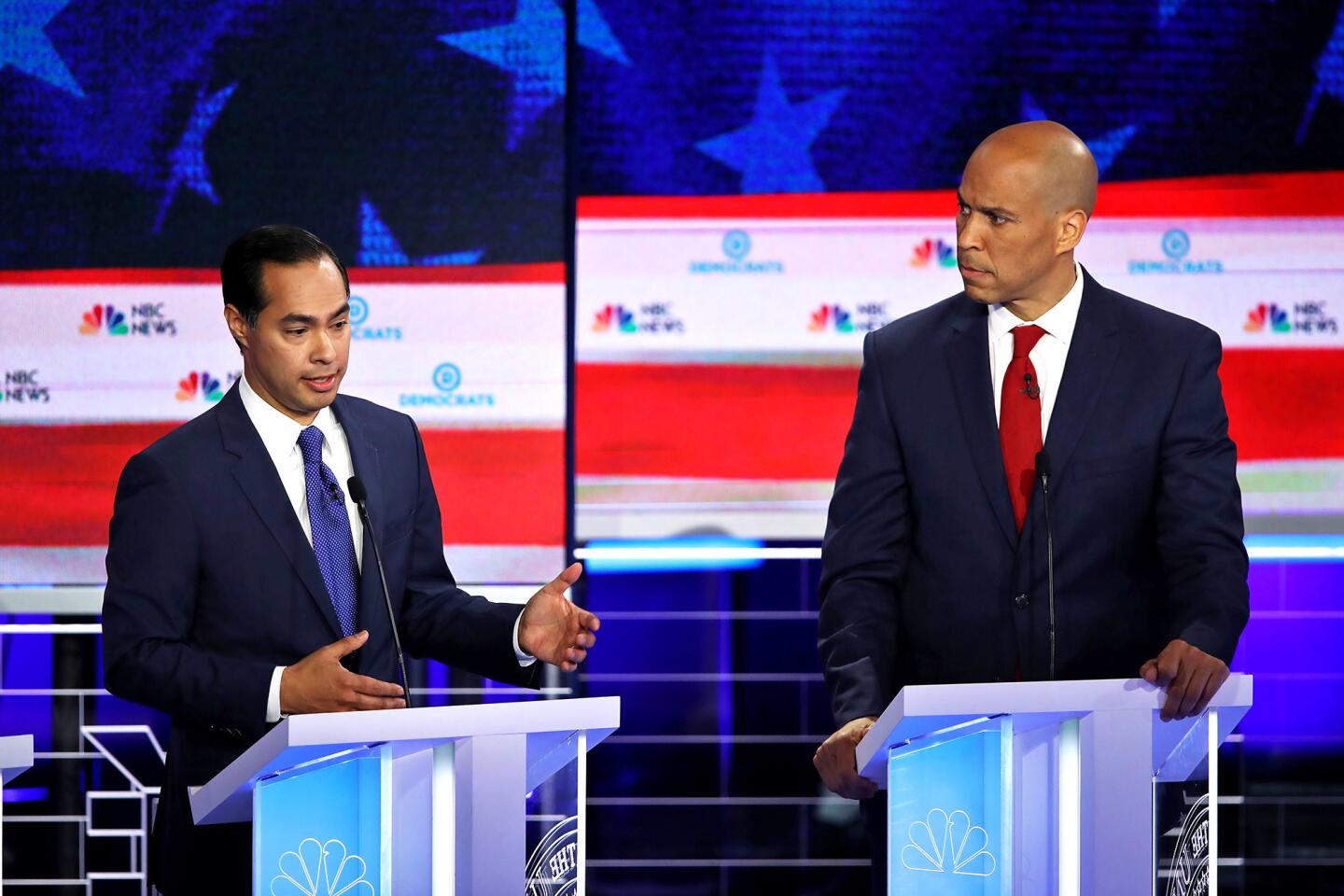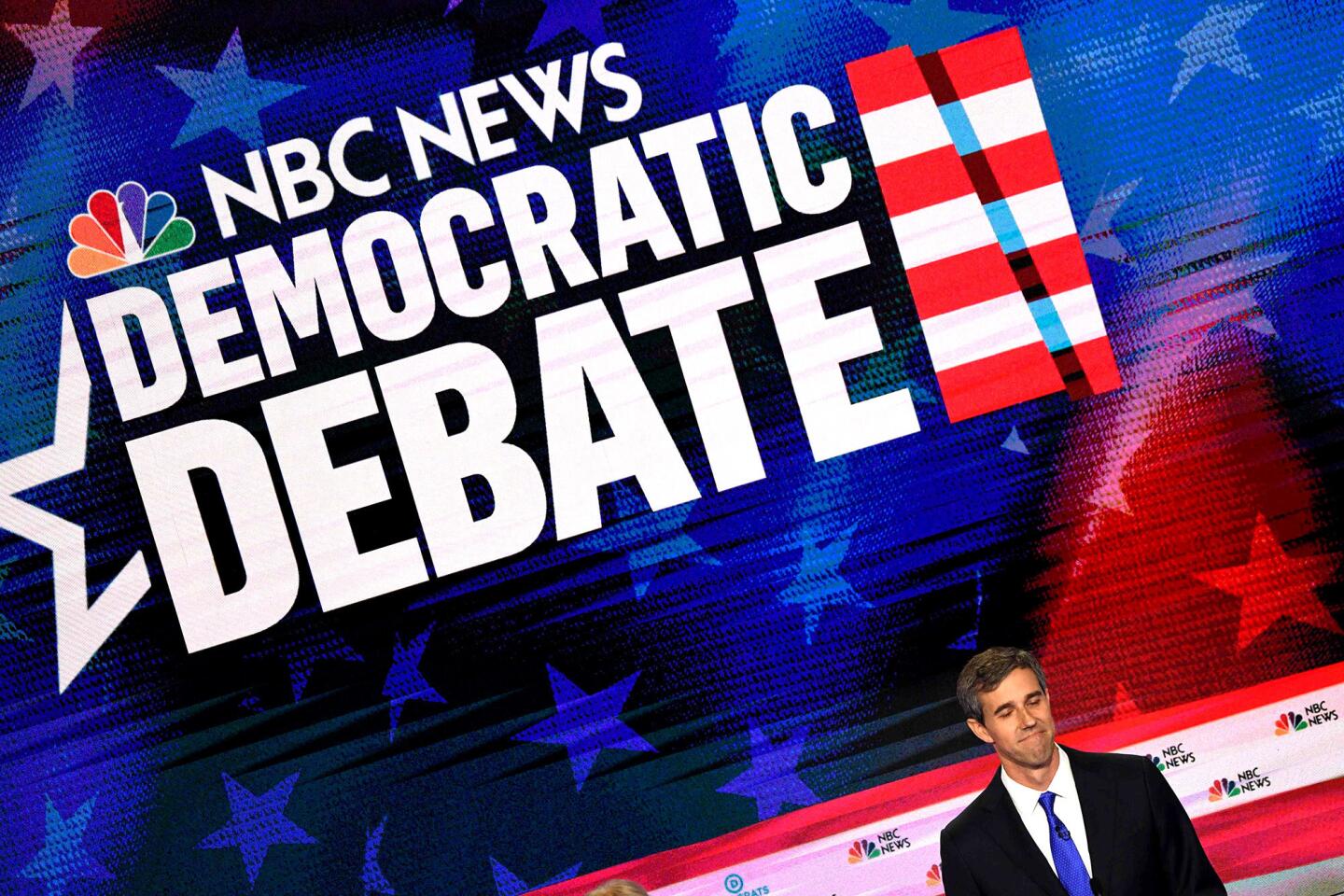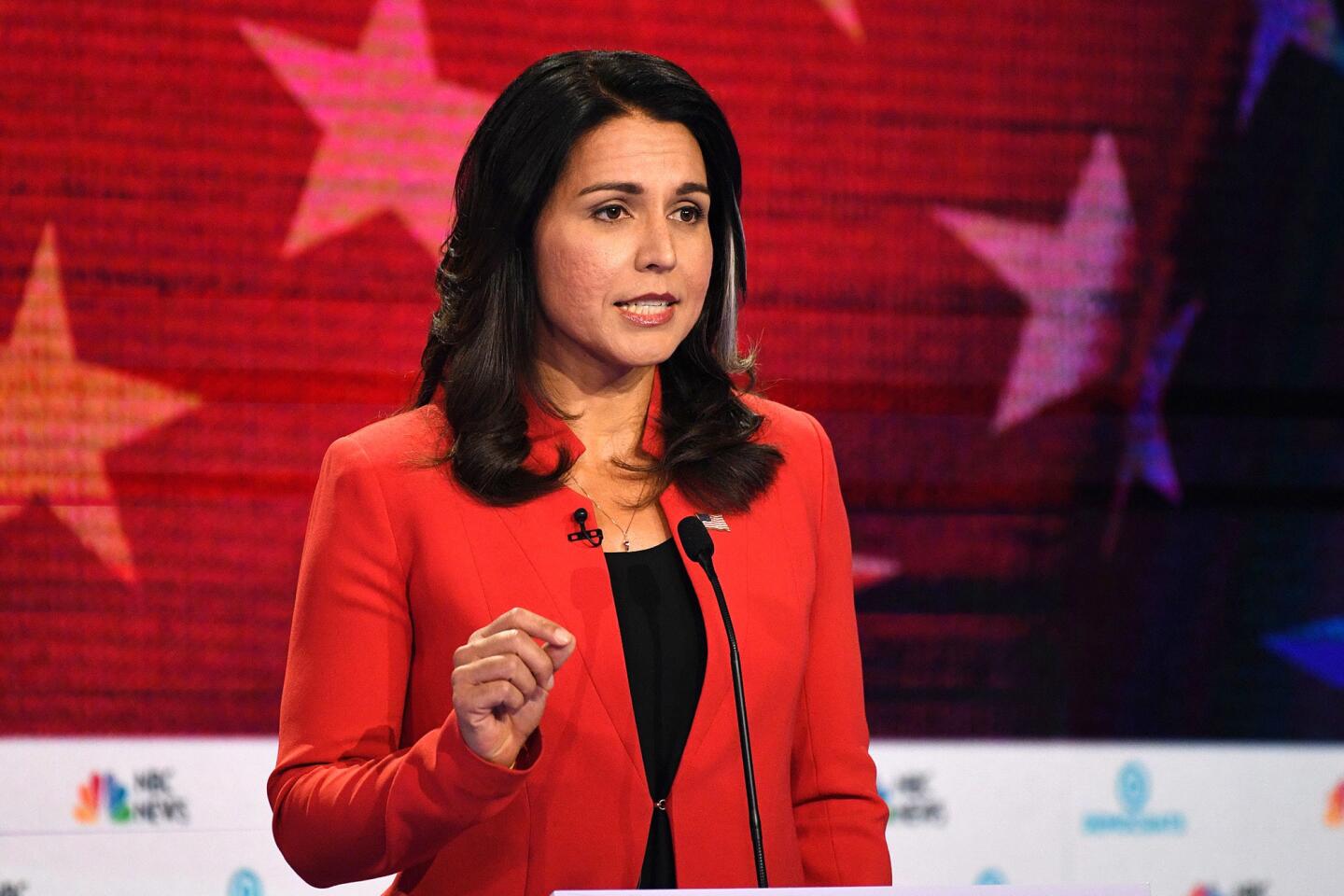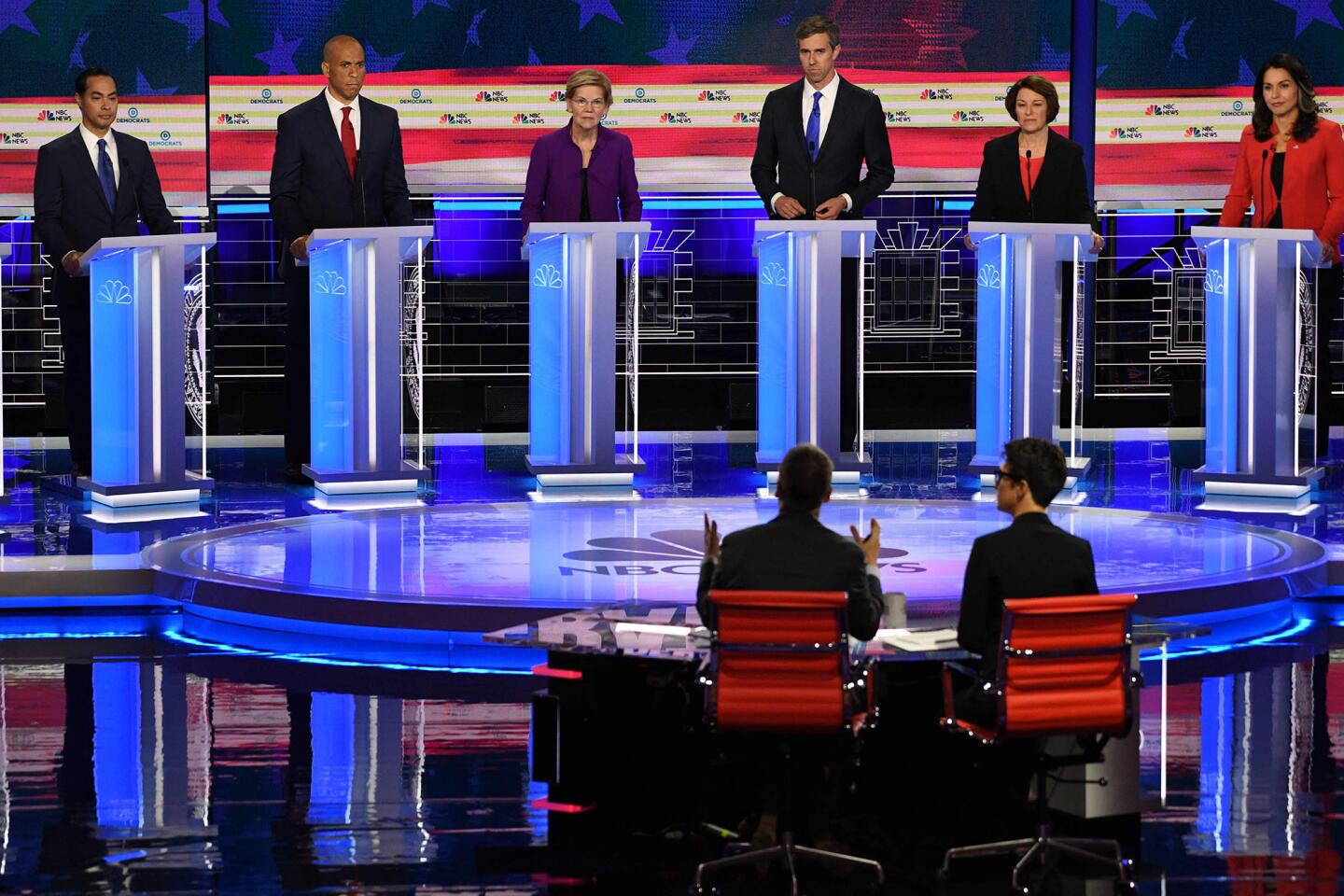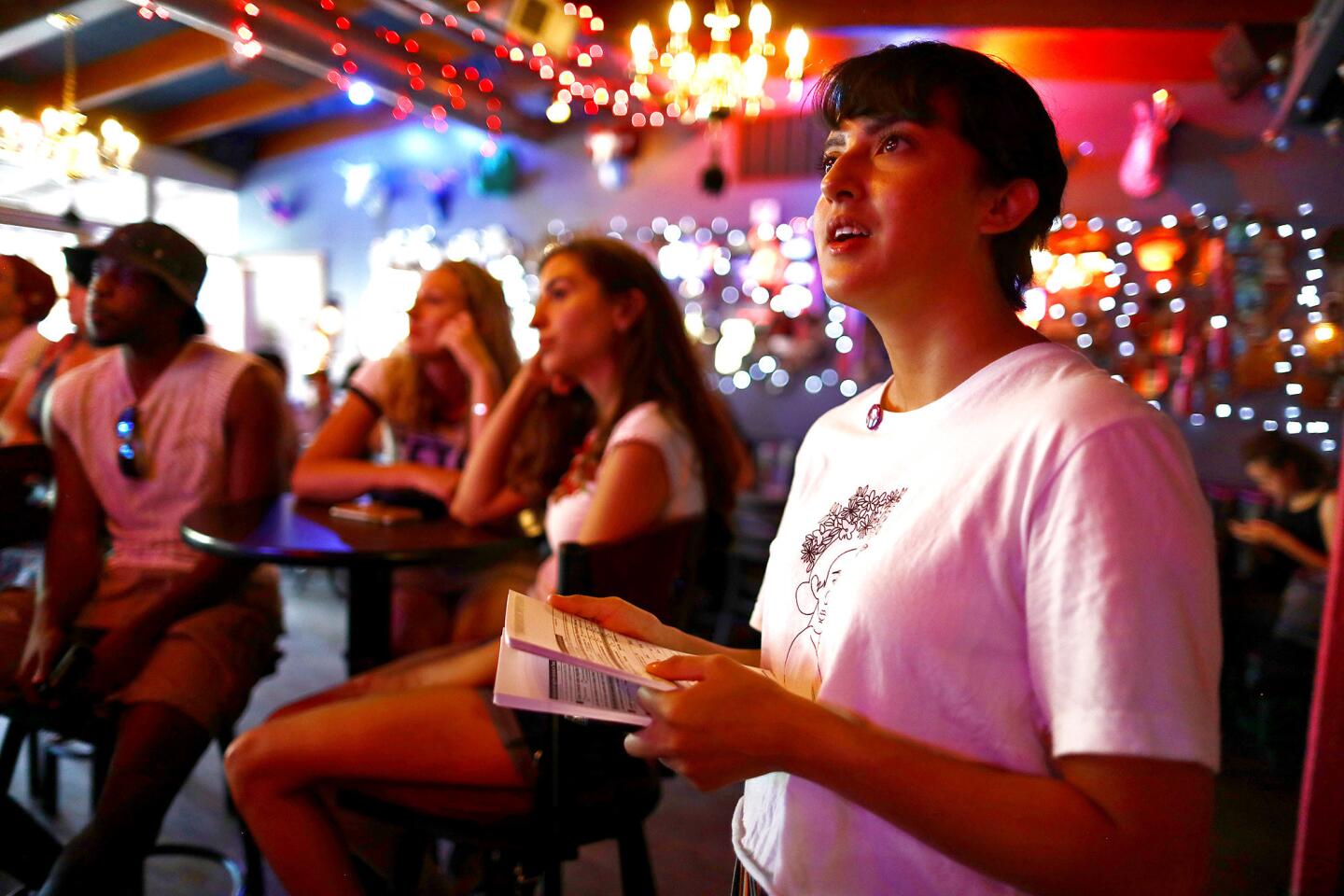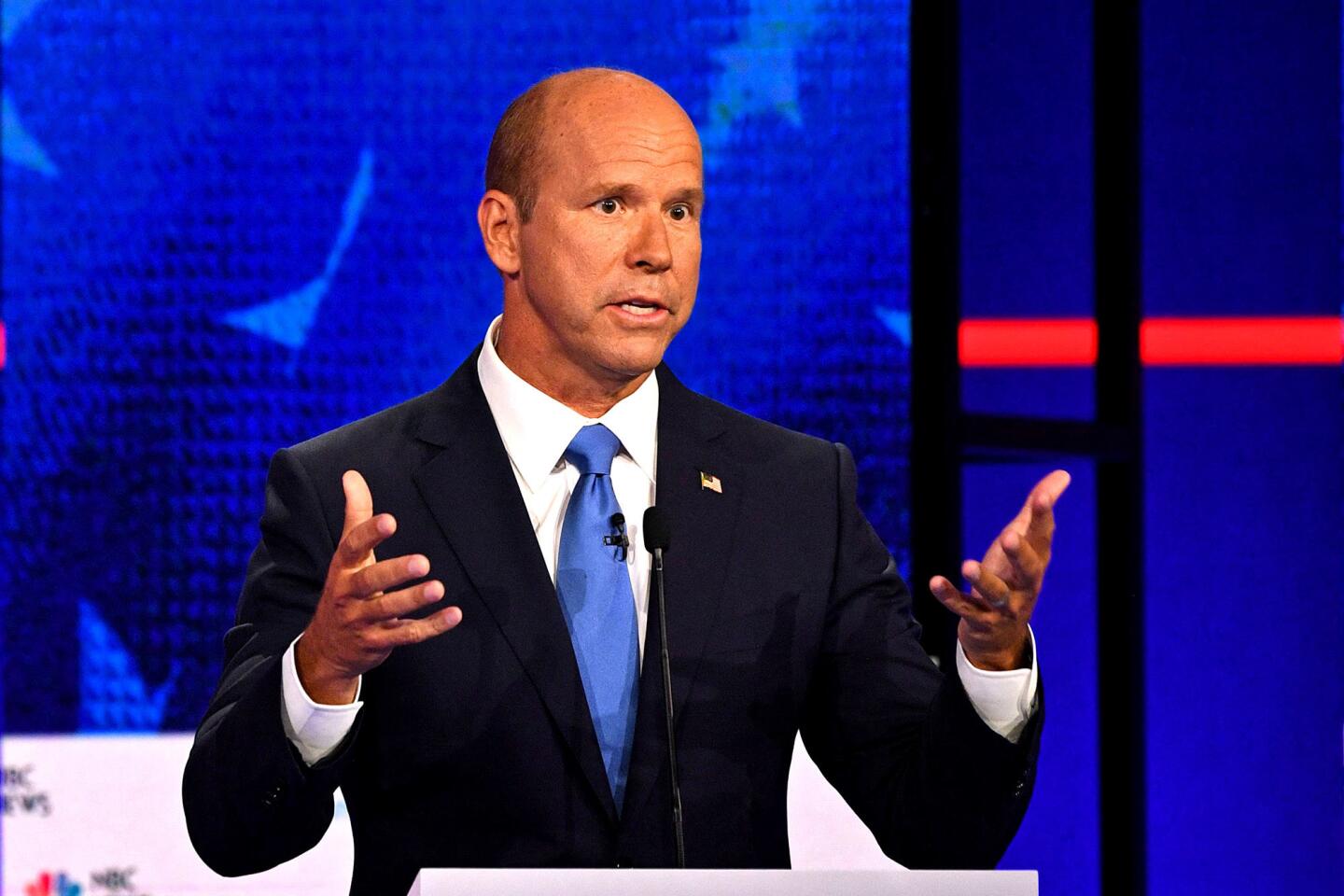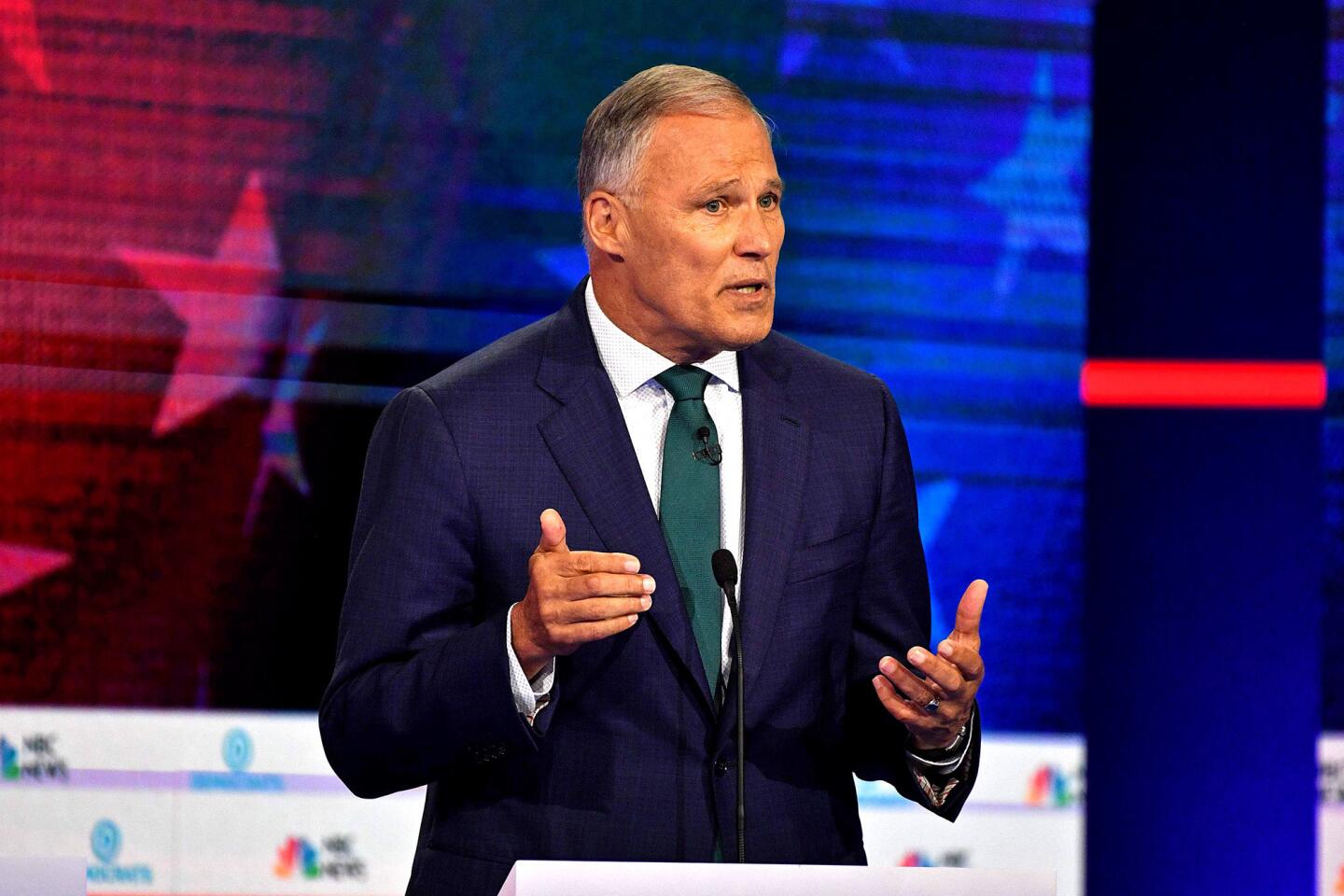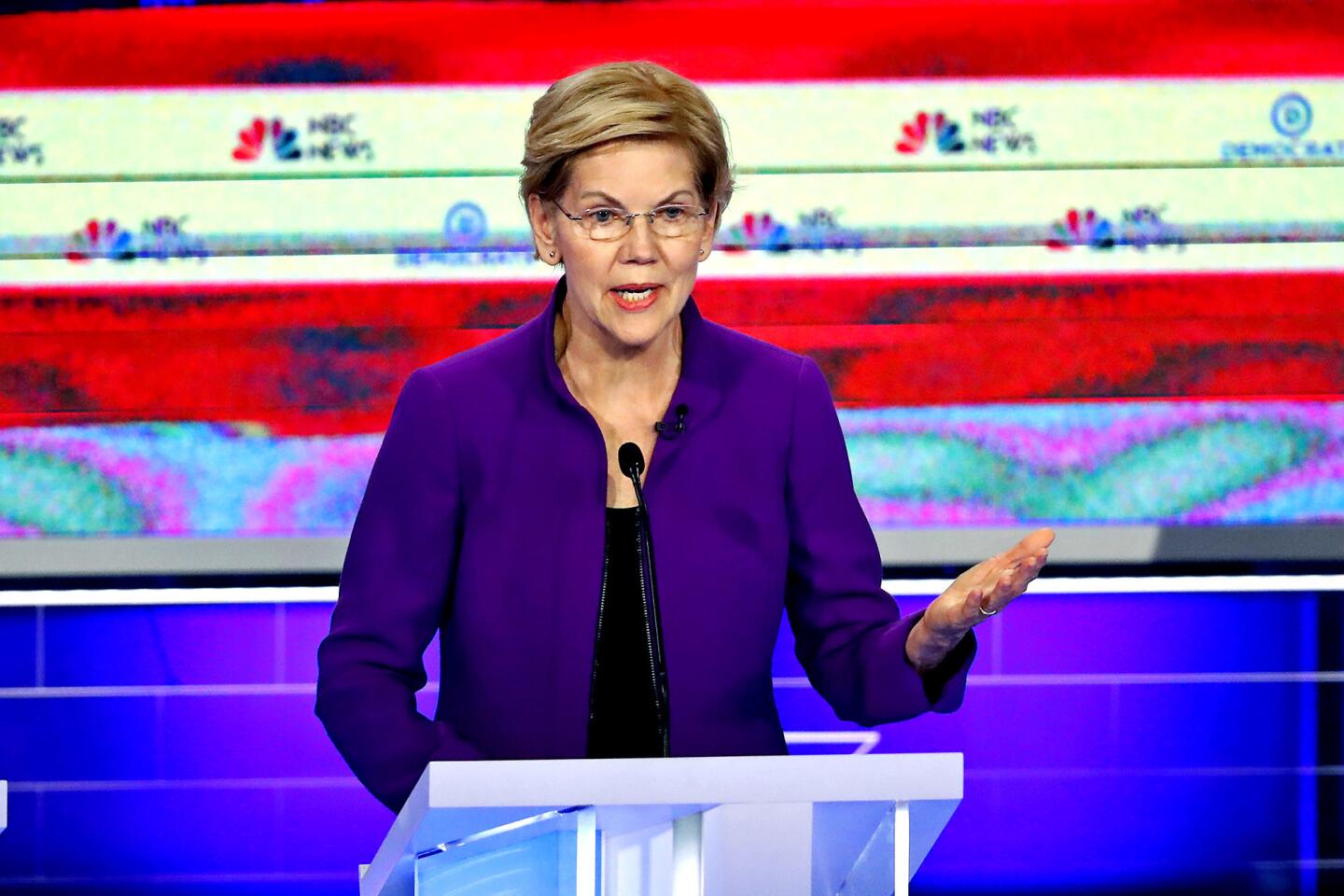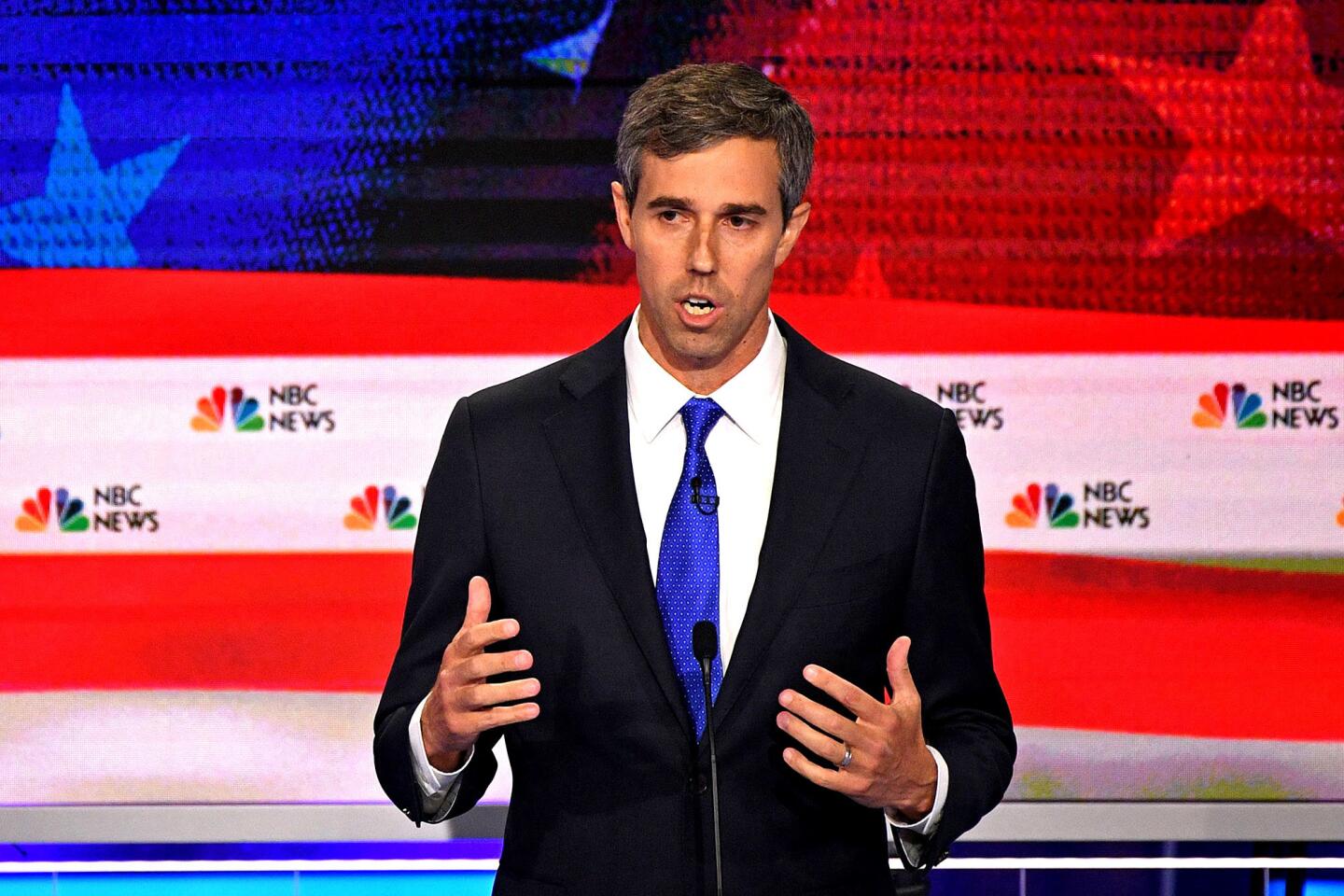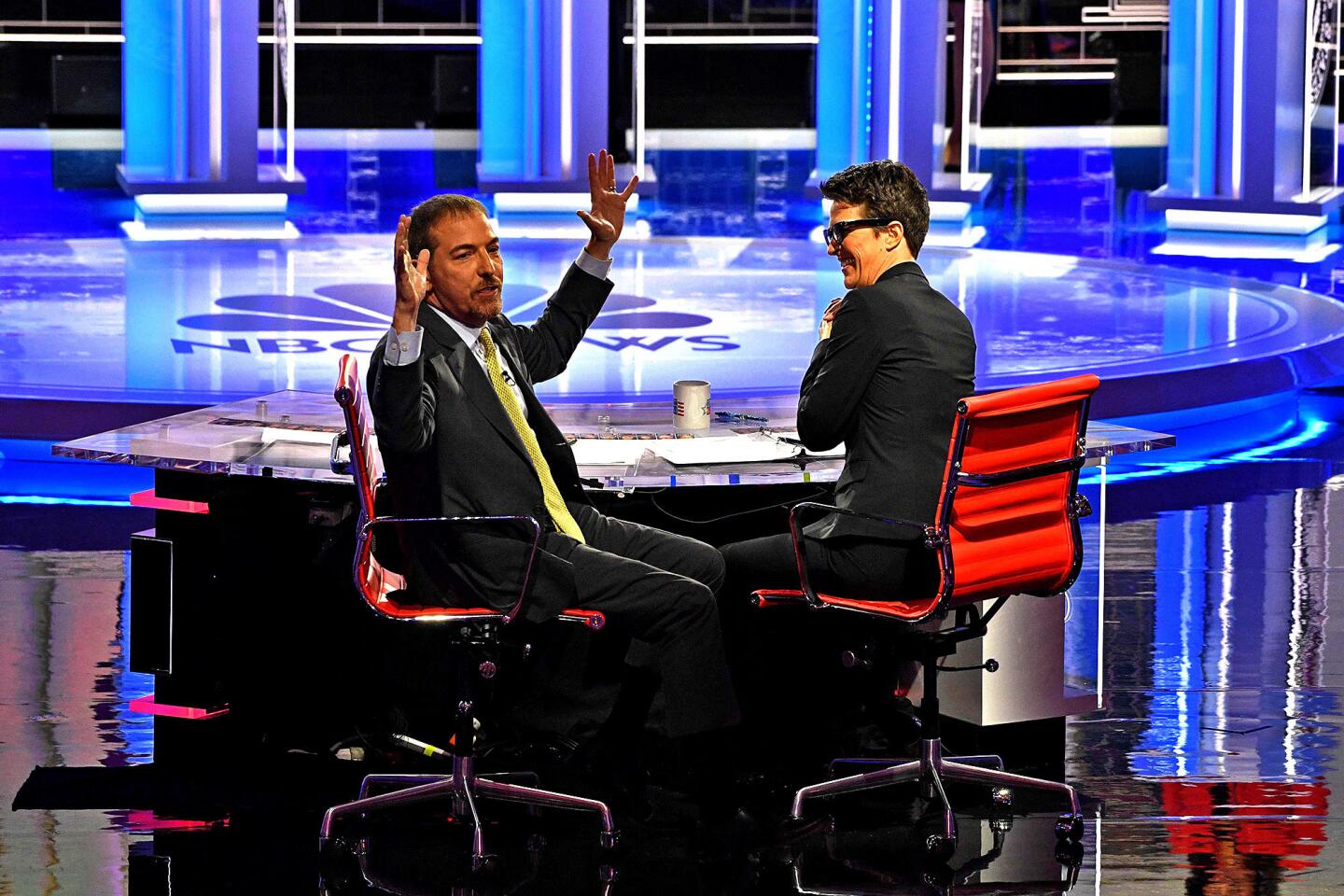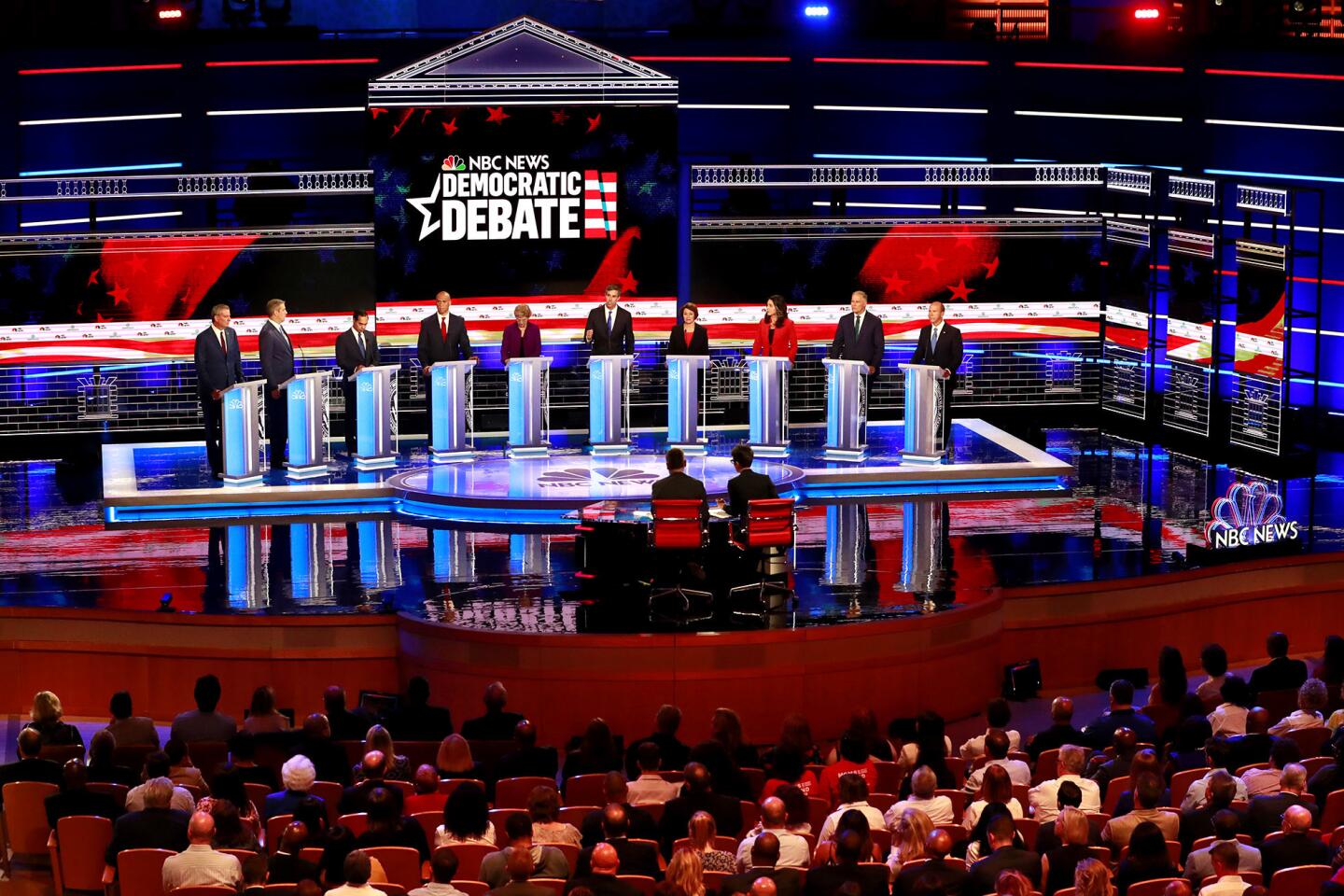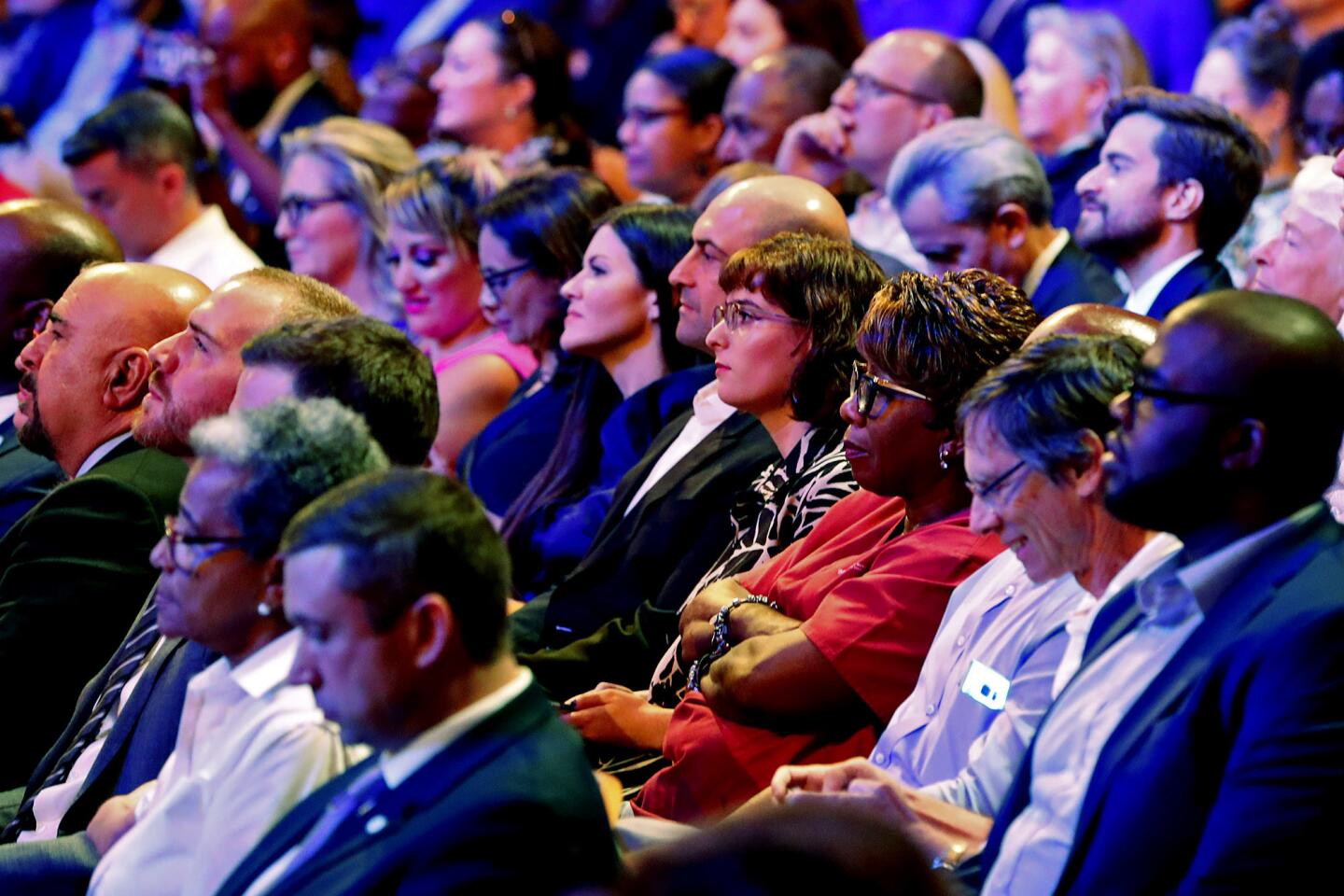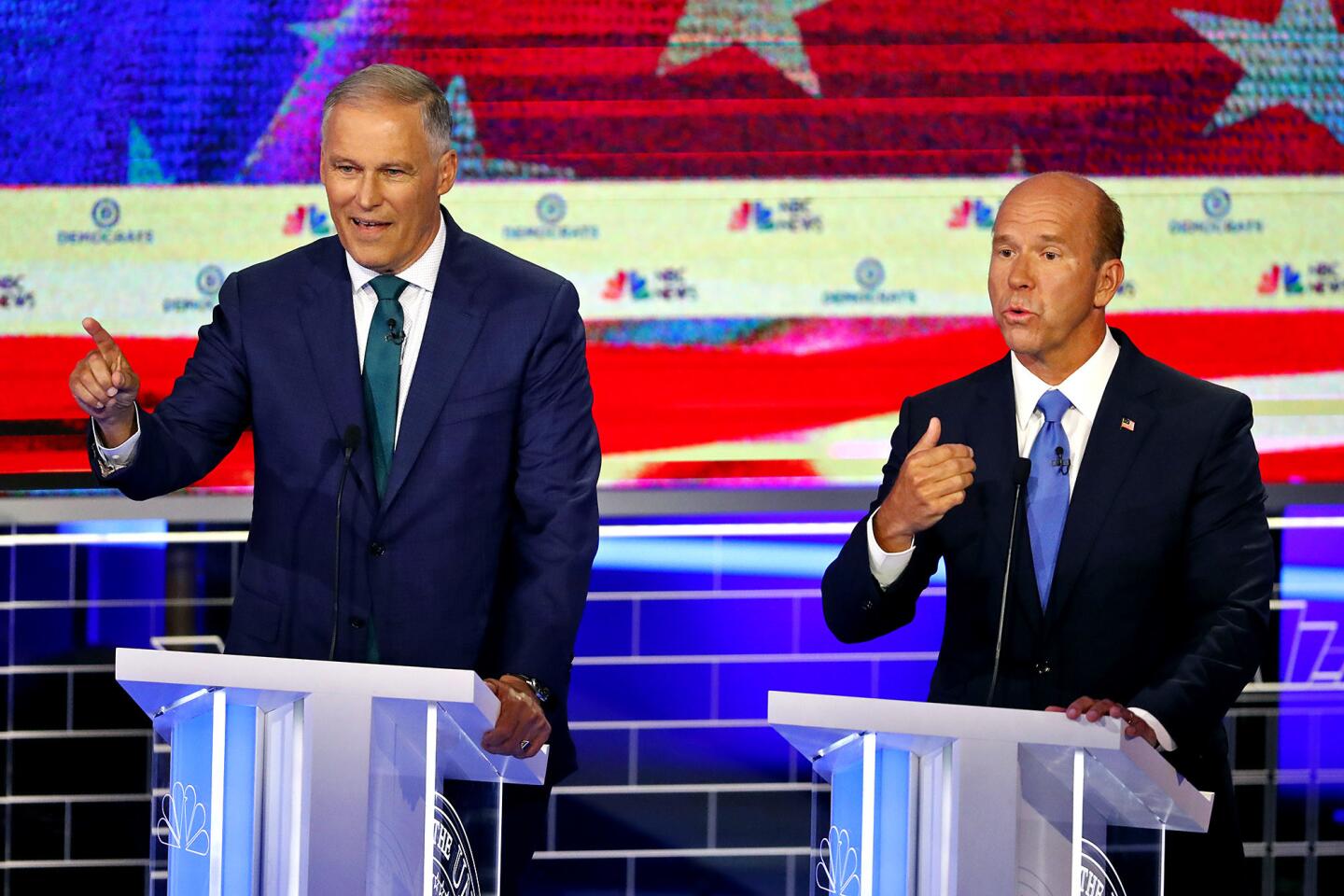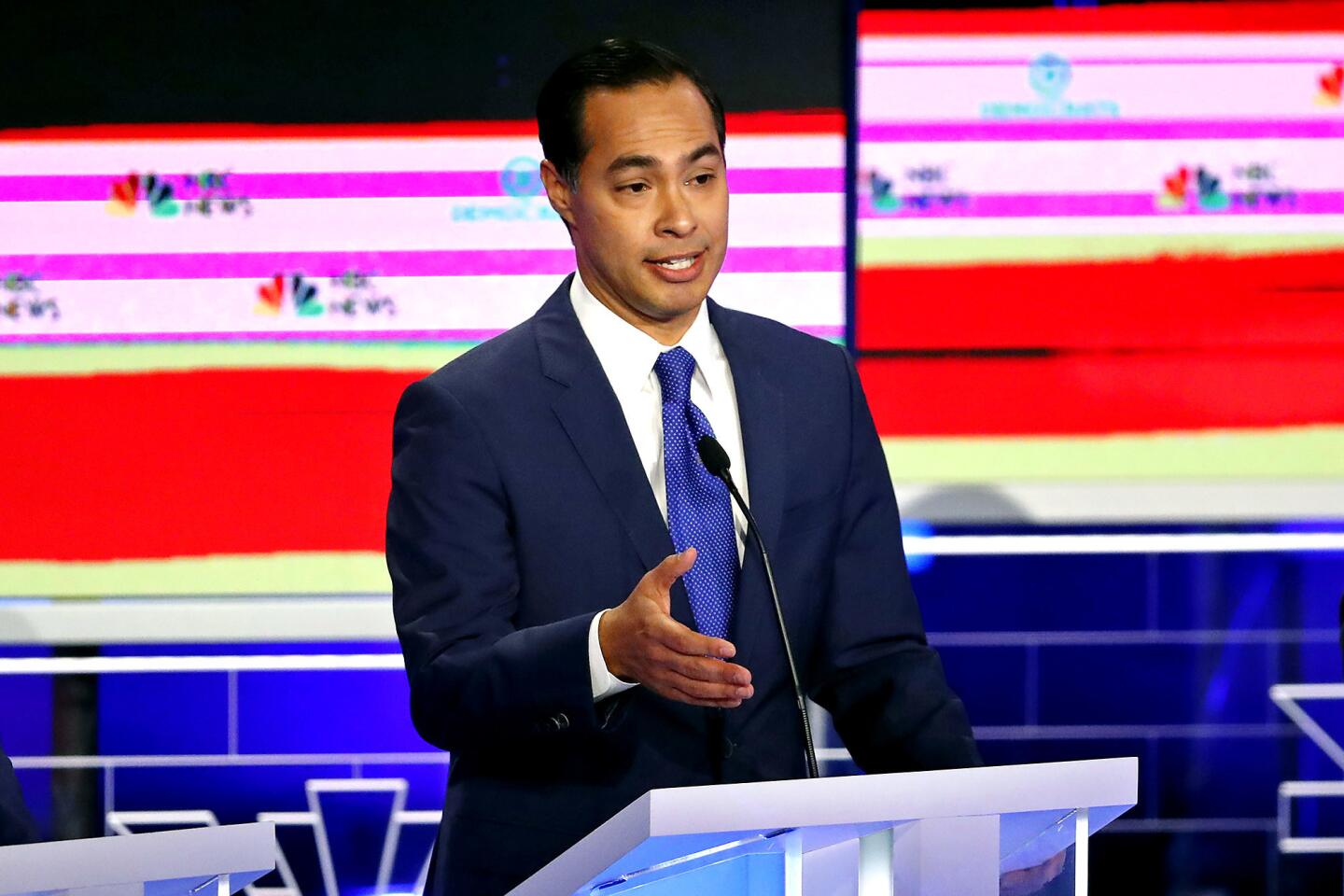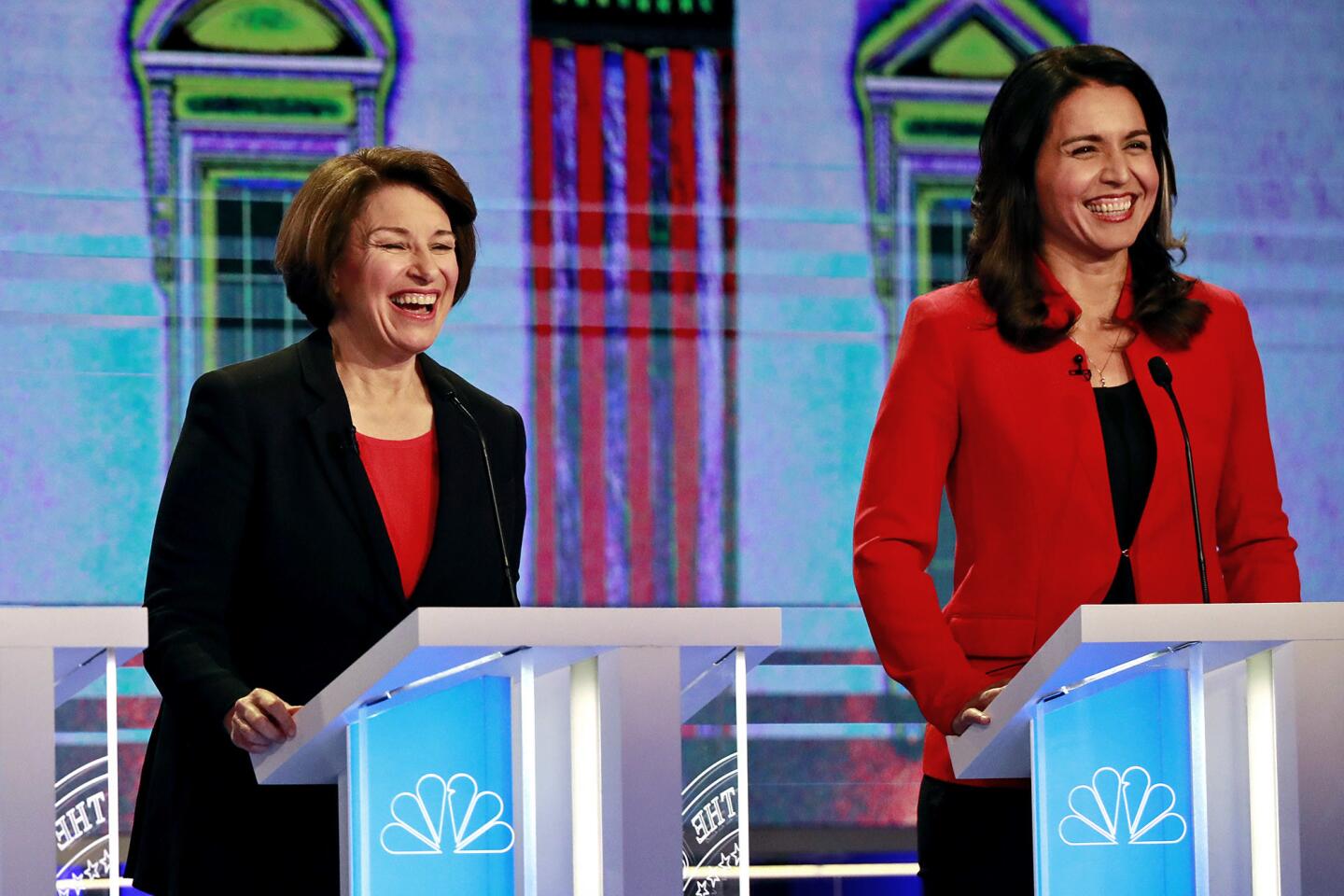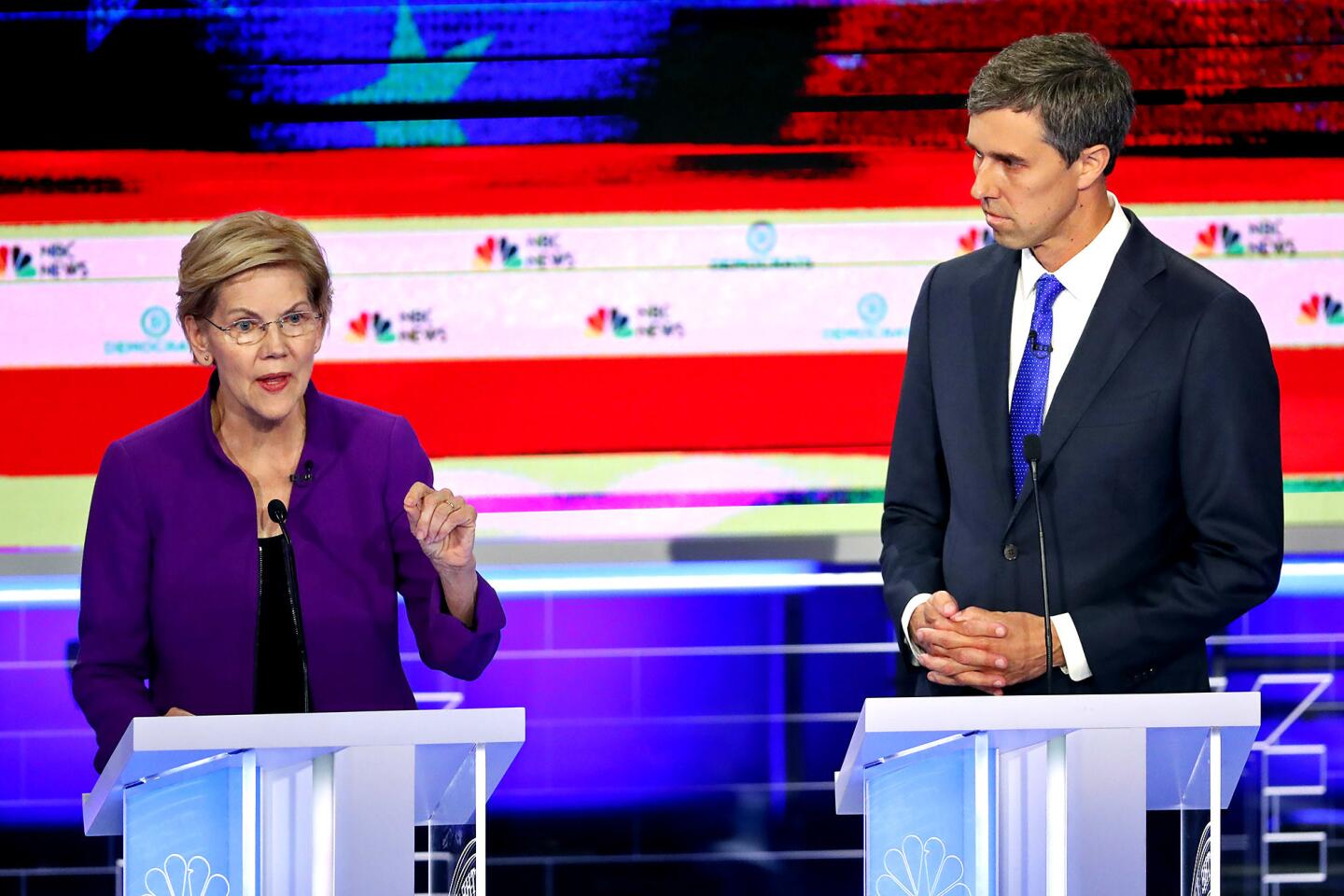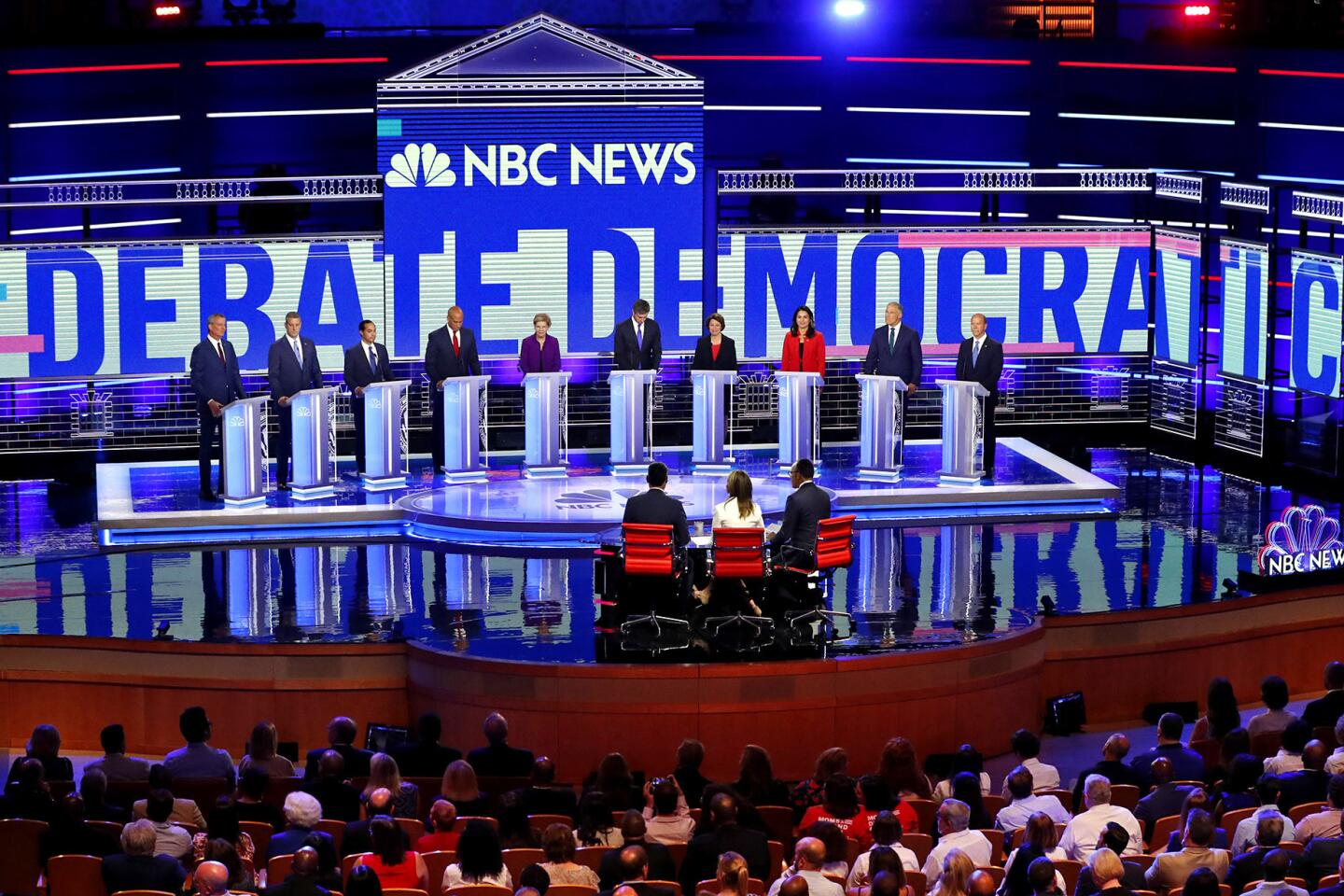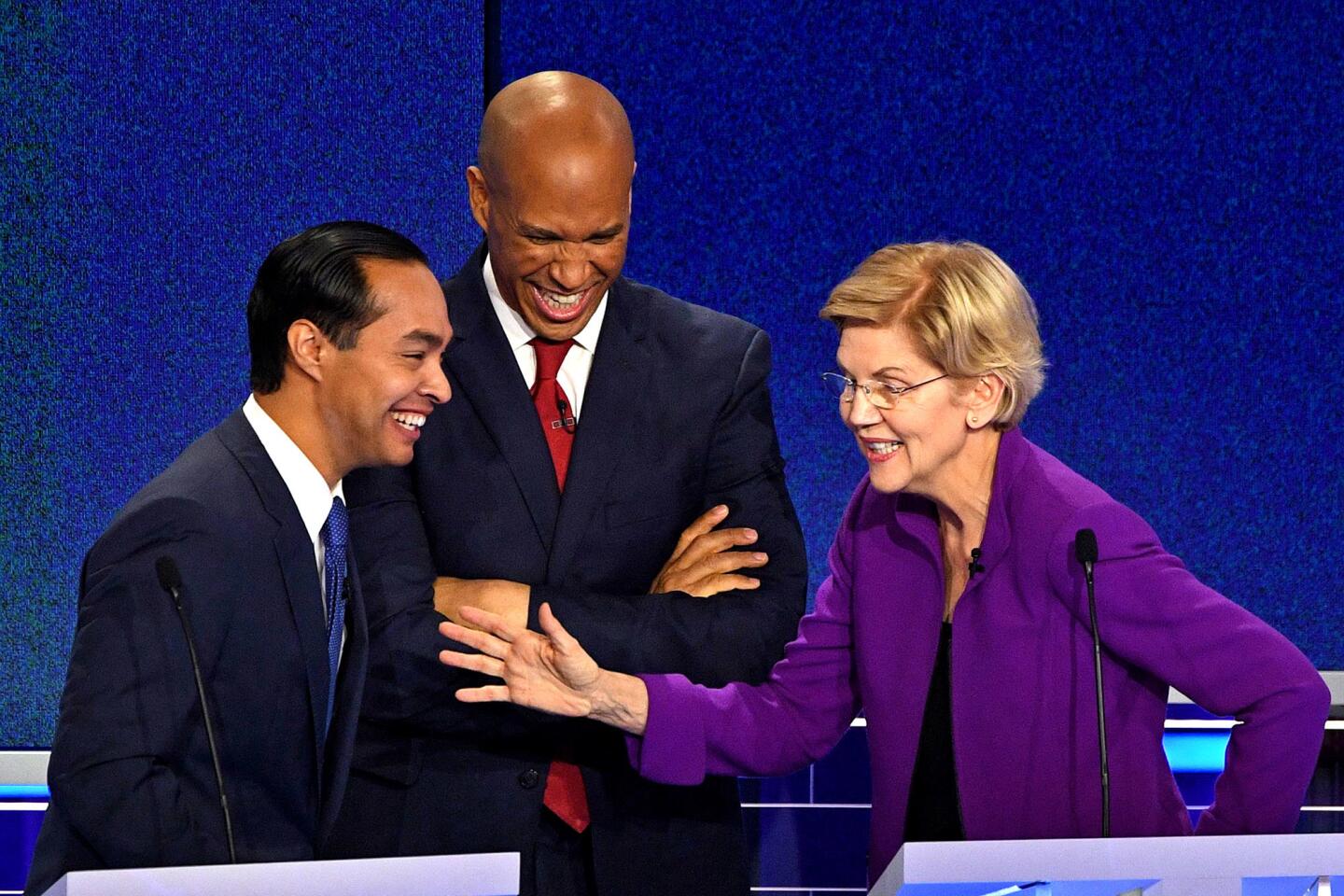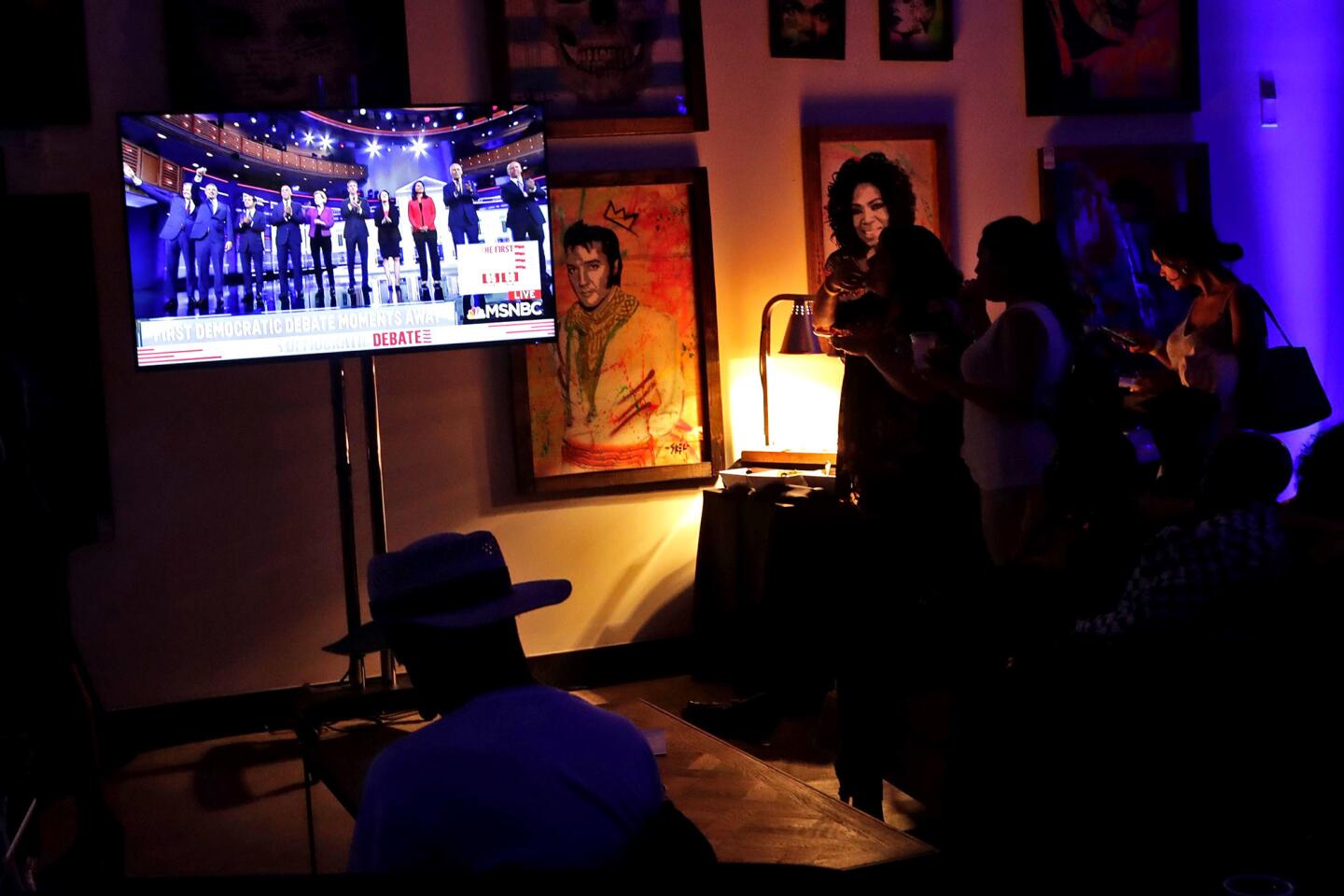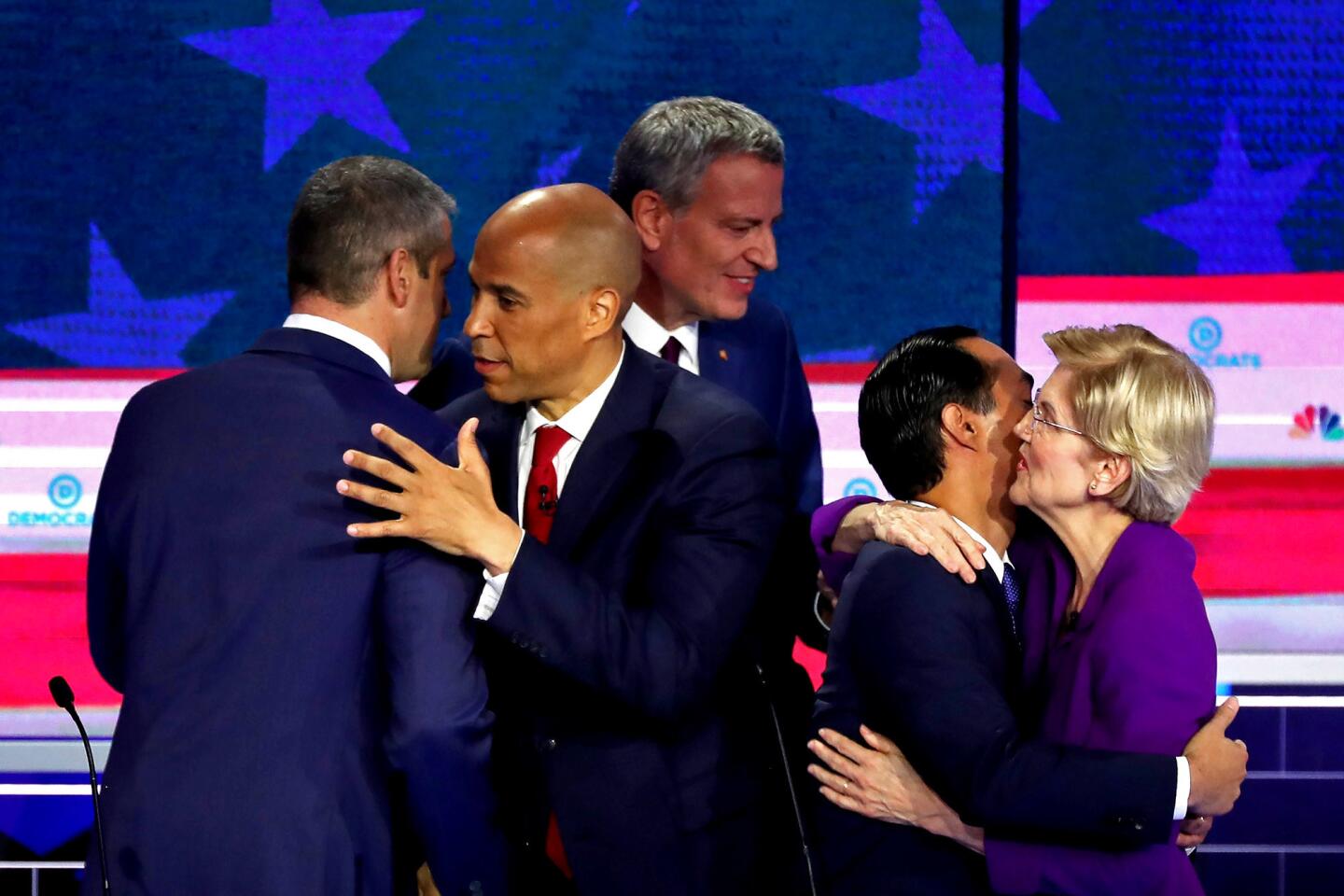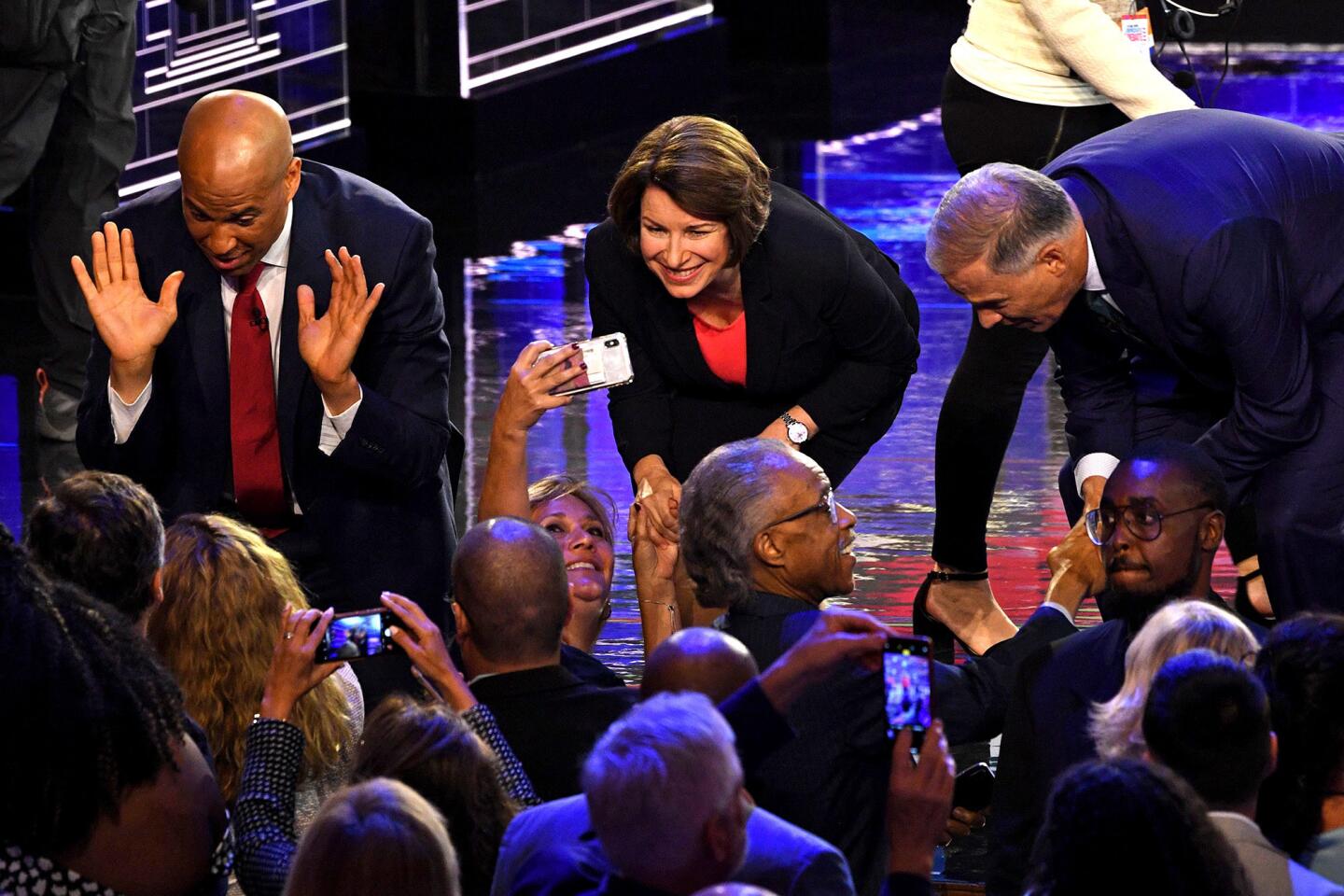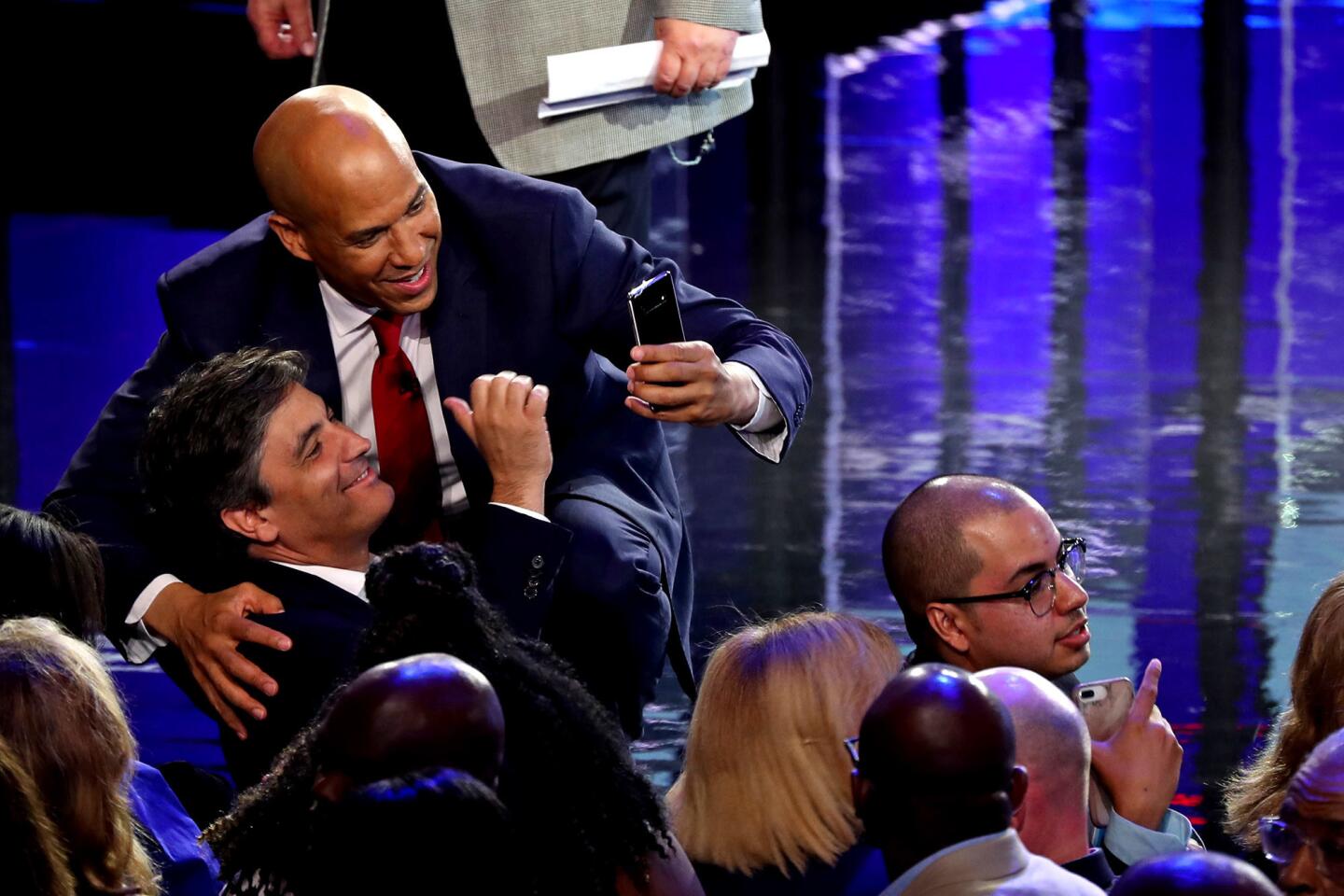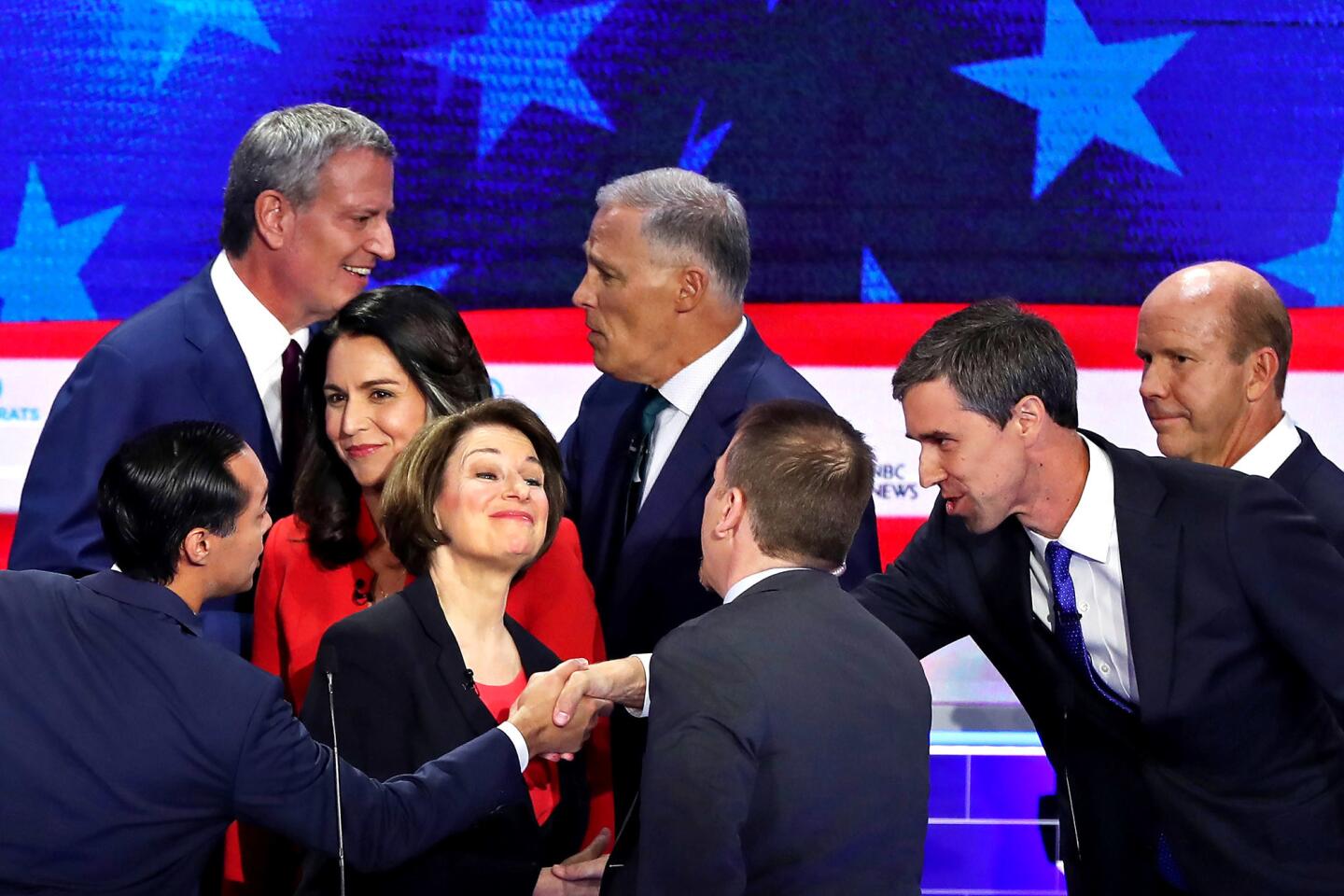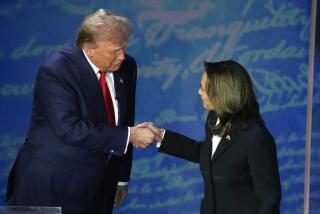Commentary: To shine in debates, Democrats will have to (gulp) learn from Trump
- Share via
All 10 performers had a role to play Wednesday on Night 1 of the first Democratic primary debate of the 2020 campaign. Elizabeth Warren was the one to beat. Julián Castro came in as a side character, but quickly emerged as the breakthrough surprise. And New York Mayor Bill de Blasio made himself useful as a pot-stirrer, instigating more than one argument.
But there was one common denominator that separated those who distinguished themselves from the onstage scrum: Castro, Warren and others adopted the night’s winning strategy from Voldemort himself, Donald Trump.
In other words, the candidates who prevailed in the event, broadcast live from Miami’s Adrienne Arsht Center for the Performing Arts, were those who ditched the old debate script and used their allotted time — a scant one minute for answers and 30 seconds for follow-ups — to speak like actual human beings.
Their approach wasn’t to emulate Trump’s winning Republican primary performances in 2015-16, but to borrow from the former reality TV star’s playbook of tossing out the playbook, rolling over the stiff-suit tradition by showing up as themselves — or at least the carefully crafted “genuine” self they projected to the audience watching them duke it out on host networks NBC, MSNBC and Telemundo.
Former Housing and Urban Development Secretary Castro immediately stood out with his impassioned answers about women’s rights (“I don’t believe only in reproductive freedom. I believe in reproductive justice!”) and his emotional response to the plight of immigrants today.
On the tragic death of immigrant Oscar Alberto Martinez and his 23-month-old daughter, Angie Valeria, as they tried to cross the Rio Grande at the U.S.-Mexican border, the night’s only Latino candidate appeared to tear up when he proclaimed it “heartbreaking,” adding, “It should also piss us all off.”
Massachusetts Sen. Warren, tapped to win the night, came in neck-and-neck with Castro with her initial fiery retorts to questions posed by moderators Savannah Guthrie, Lester Holt and Jose Diaz-Balart.
When asked about free universal healthcare versus private insurance, she said, insurance companies “last year alone sucked $23 billion in profits out of the healthcare system. ... It’s not working for families, but it’s sure as heck working for them.”
RELATED: Why reality TV has nothing on the Democratic debates »
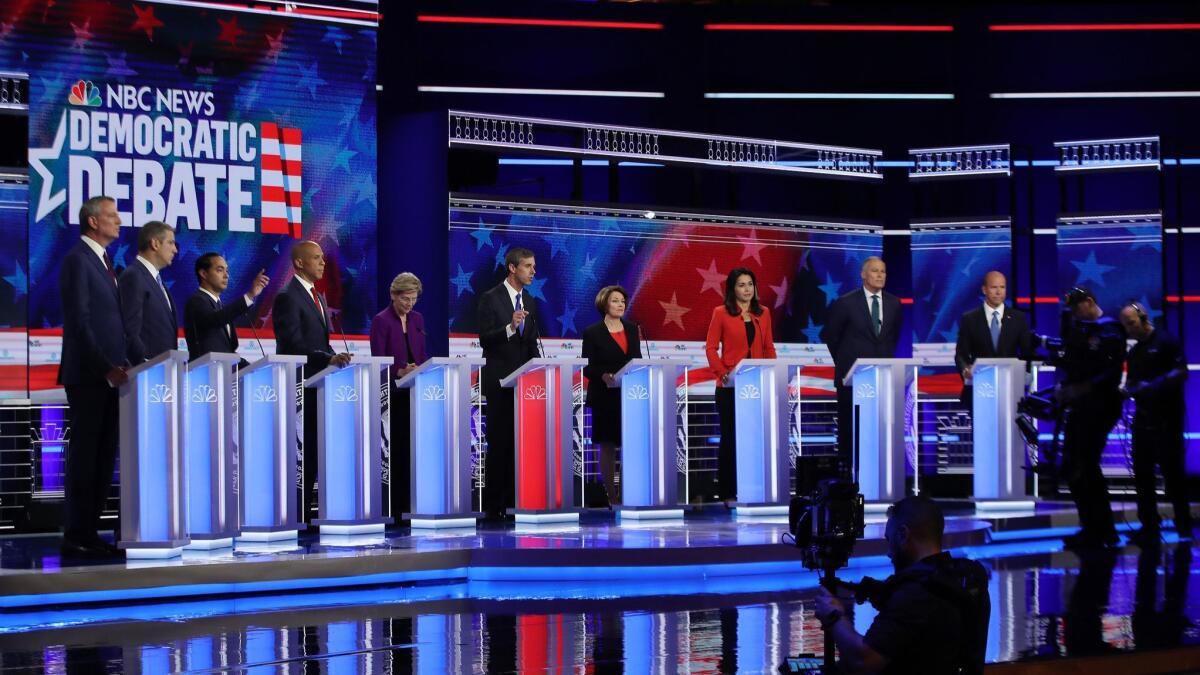
If insults and bombast were the valued currency of the Republican debates last time around, then realism and passion were Wednesday’s cachet.
For Warren, that meant donning a bright purple jacket and packing an arsenal of damning facts about “the 1%” and corporate conglomerates.
For Minnesota Sen. Amy Klobuchar, abandoning the usual D.C. decorum meant answering without frills, including the forced sunniness of many pols. “Let’s get to the issues,” she seemed to say. “Hit me, Lester!” (Holt, that is, one of the five moderators who also worked hard to steer the two-hour debate away from the usual canned grandstanding.)
Even the NBC team got in on the unscripted act: Immediately after taking on moderating duties at the halfway mark, Rachel Maddow and Chuck Todd suffered a sustained audio snafu that required tossing to a commercial break, and at one point Guthrie, unsatisfied with the responses to her question about how candidates would handle the cases of migrant children in U.S. custody on Day 1 of their presidencies, tsk-tsked, “I have yet to hear an answer from anyone on this stage.”
On the flip side, New Jersey Sen. Cory Booker and former Texas Rep. Beto O’Rourke may have doomed their Oval Office ambitions for 2020 with stale anecdotes of folks they’d met on the campaign trail, rehearsed-sounding bits on the economy, Iran, climate change (take your pick) and awkward breakouts of Spanish.
O’Rourke used Spanish in his first answer, seven minutes into the debate, as if to say, “Look, I’ve still got an edge, even if there is no table to jump on!”
Booker tried to do the same in a question posed by Diaz-Balart, but his answer too felt more like an attention grab than an effort to communicate.
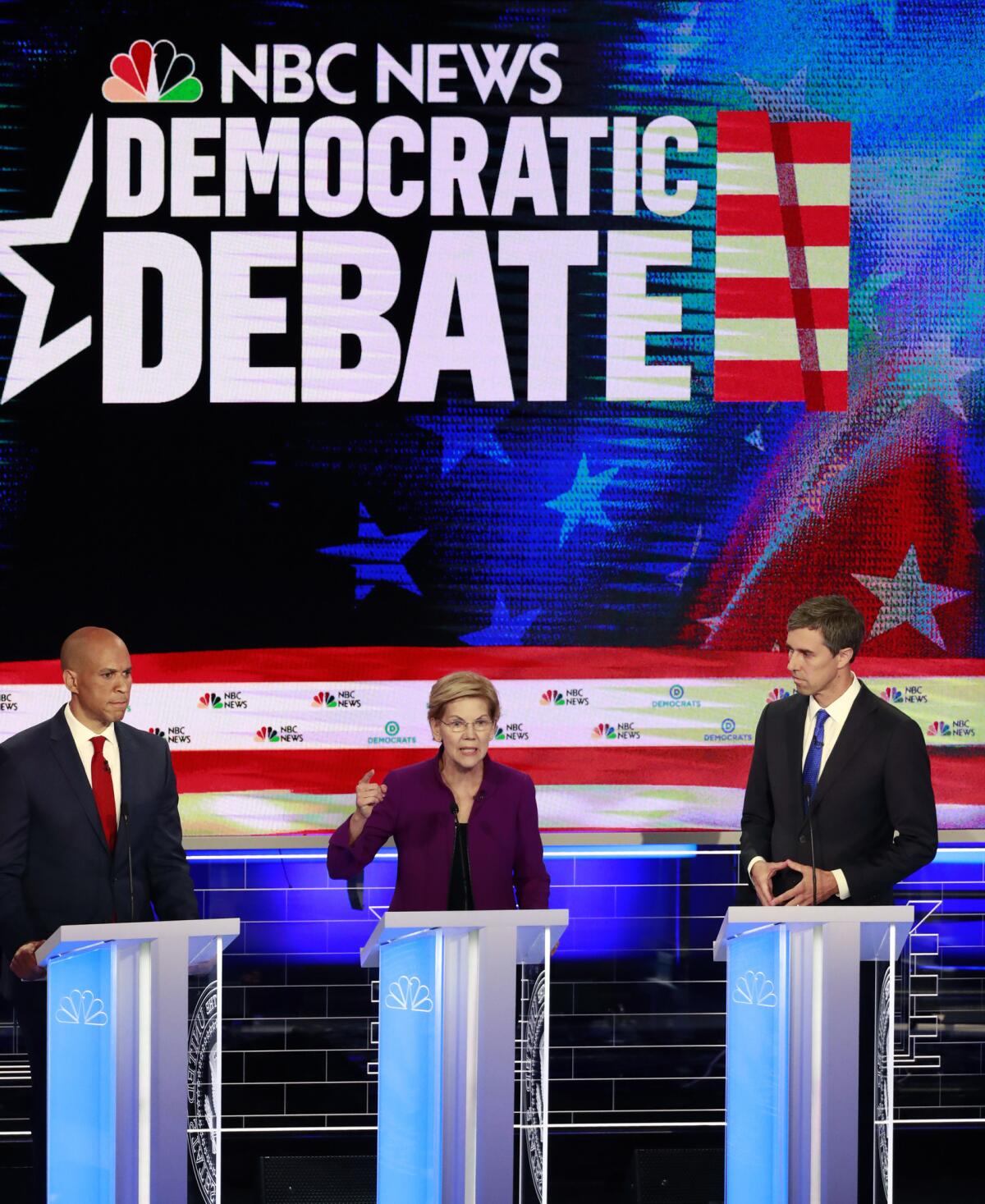
MCNAMARA: The first Democratic debate won’t break ratings records. And that’s OK »
“Decision 2020,” as it was coined by the host network, also co-starred Ohio Rep. Tim Ryan, Hawaii Rep. Tulsi Gabbard, Washington Gov. Jay Inslee and former Maryland Rep. John Delaney. They all stood at Plexiglas lecterns in an order determined by their ranking in the polls. Warren, center-stage, was flanked by the 6-foot-2 Booker and 6-foot-4 O’Rourke. It was an indelible image, the women on stage — Warren in purple, Gabbard in red and both, along with Klobuchar, shorter in stature than their male counterparts — breaking up the suit-and-tie visual of televised debates dating back to Kennedy and Nixon. Behind them was a 600-square-foot screen projecting an image of the White House, sans Trump strolling the grounds.
In the days leading up to the debate, analysts and pundits noted that the biggest challenge of this primary kickoff would be wresting the limelight from the most attention-starved president. But if a Jerry Springer-style smackdown was the benchmark of success, then the Democratic debate proudly failed: On the whole, there was general congeniality among the rivals for the nomination, not to mention a fair bit of substantial talk about the actual issues plaguing the nation. At one point, Holt wryly highlighted the similarities of the candidates’ platforms: “I’m trying to figure out if there’s any daylight between you.”
Not the stuff of network executives’ ratings dreams, but certainly the less-staged approach to political theater reflected the change that’s come to Washington since the last presidential race.
Thursday’s debate may turn out to be an entirely different show, with front-runner Joe Biden and rivals Bernie Sanders, Kamala Harris and Pete Buttigieg — as well as six more contenders — taking the stage. The stakes are higher, the voting records are longer, and mining the former vice president’s cornucopia of gaffes could fuel an entire debate season.
But for at least one evening, the most persuasive Democrats appeared to speak candidly: In the race to defeat an unscripted president, authenticity won the night.
More to Read
Get the L.A. Times Politics newsletter
Deeply reported insights into legislation, politics and policy from Sacramento, Washington and beyond. In your inbox three times per week.
You may occasionally receive promotional content from the Los Angeles Times.
